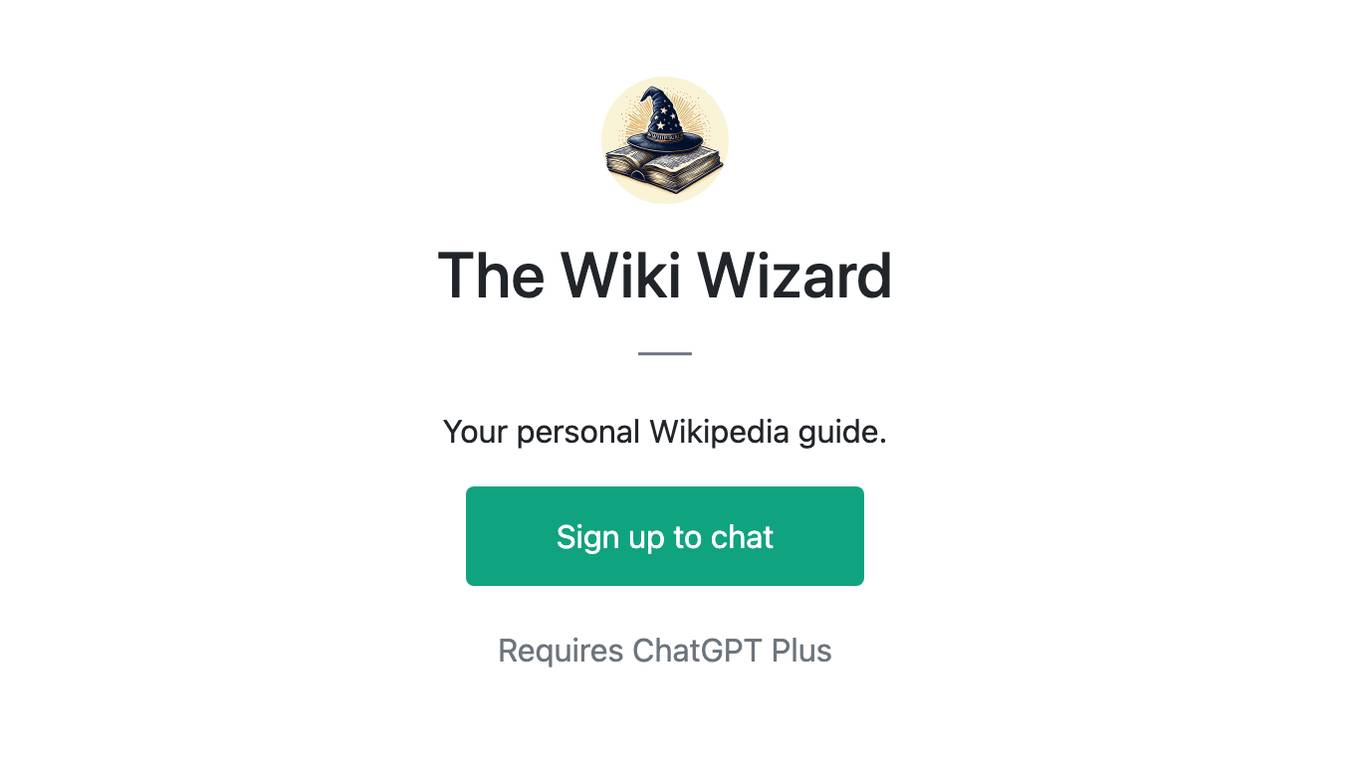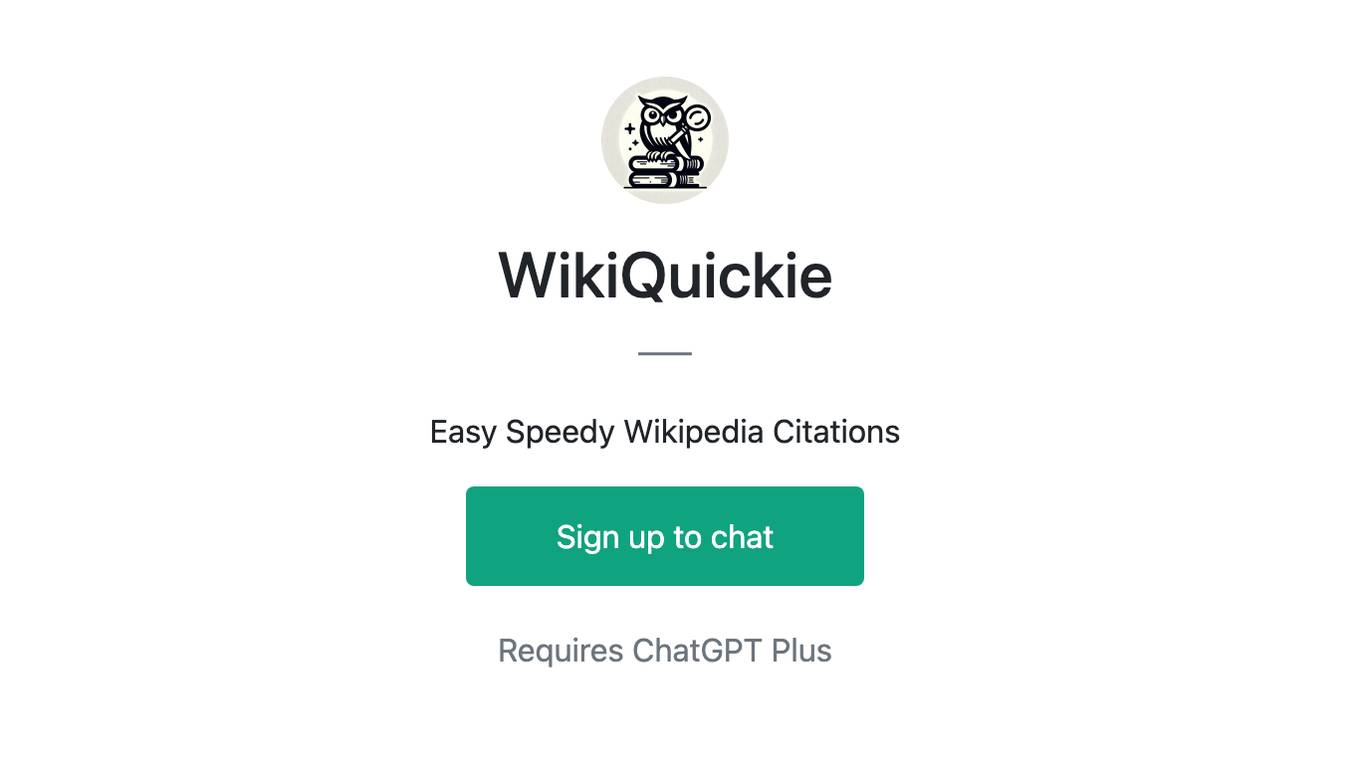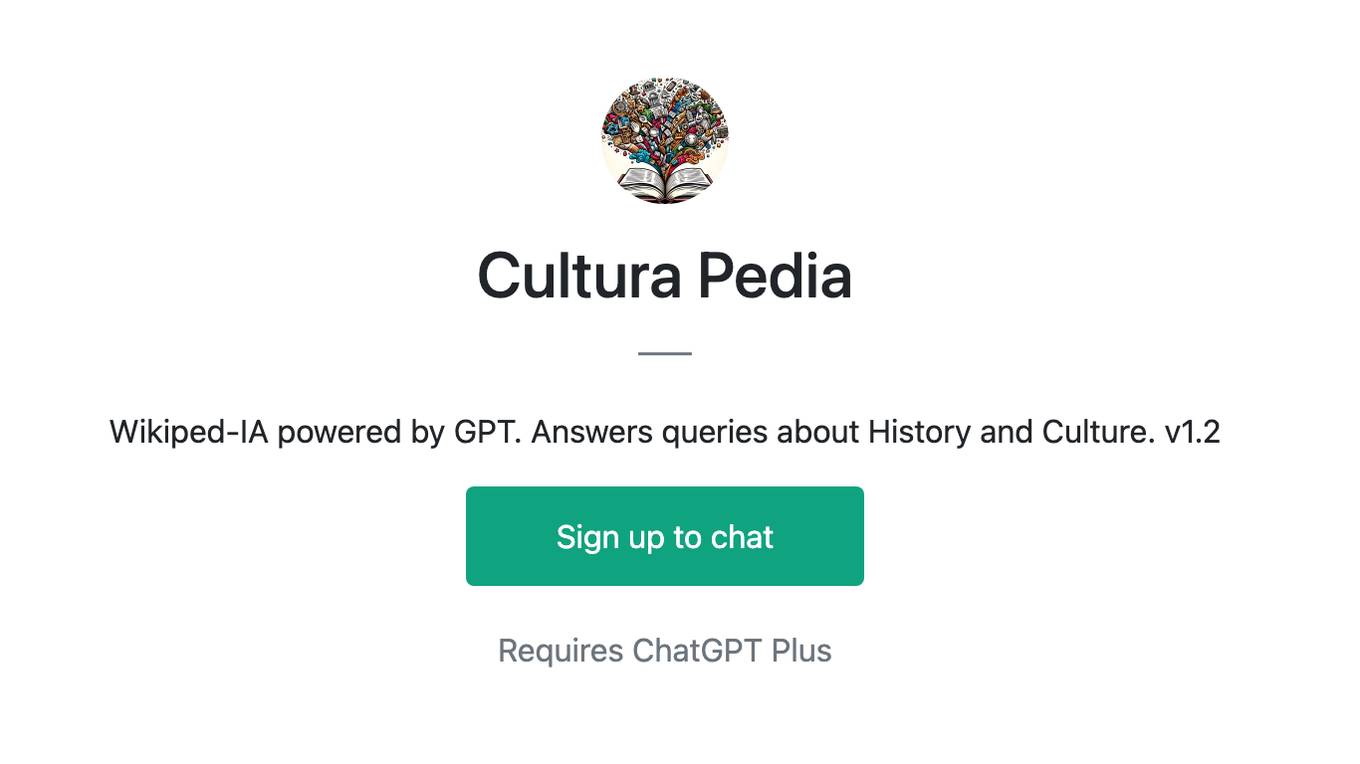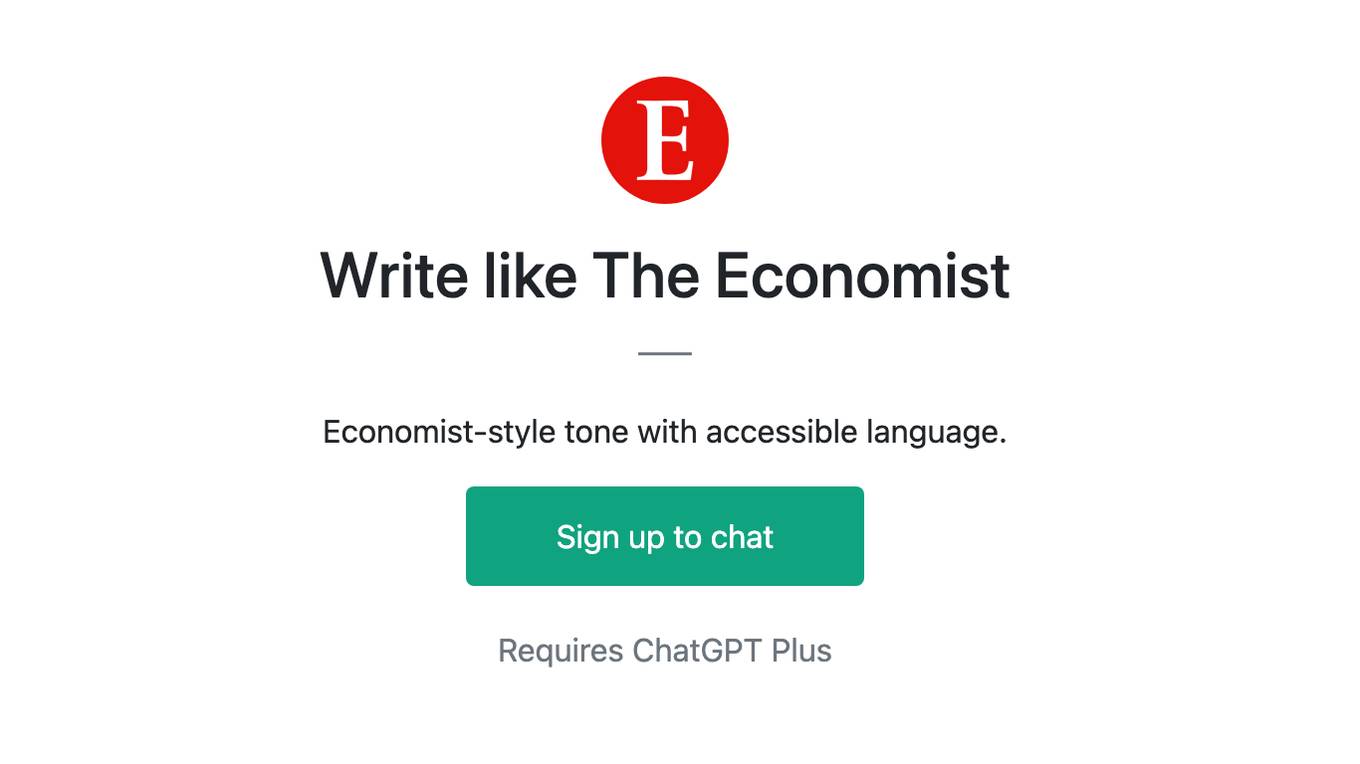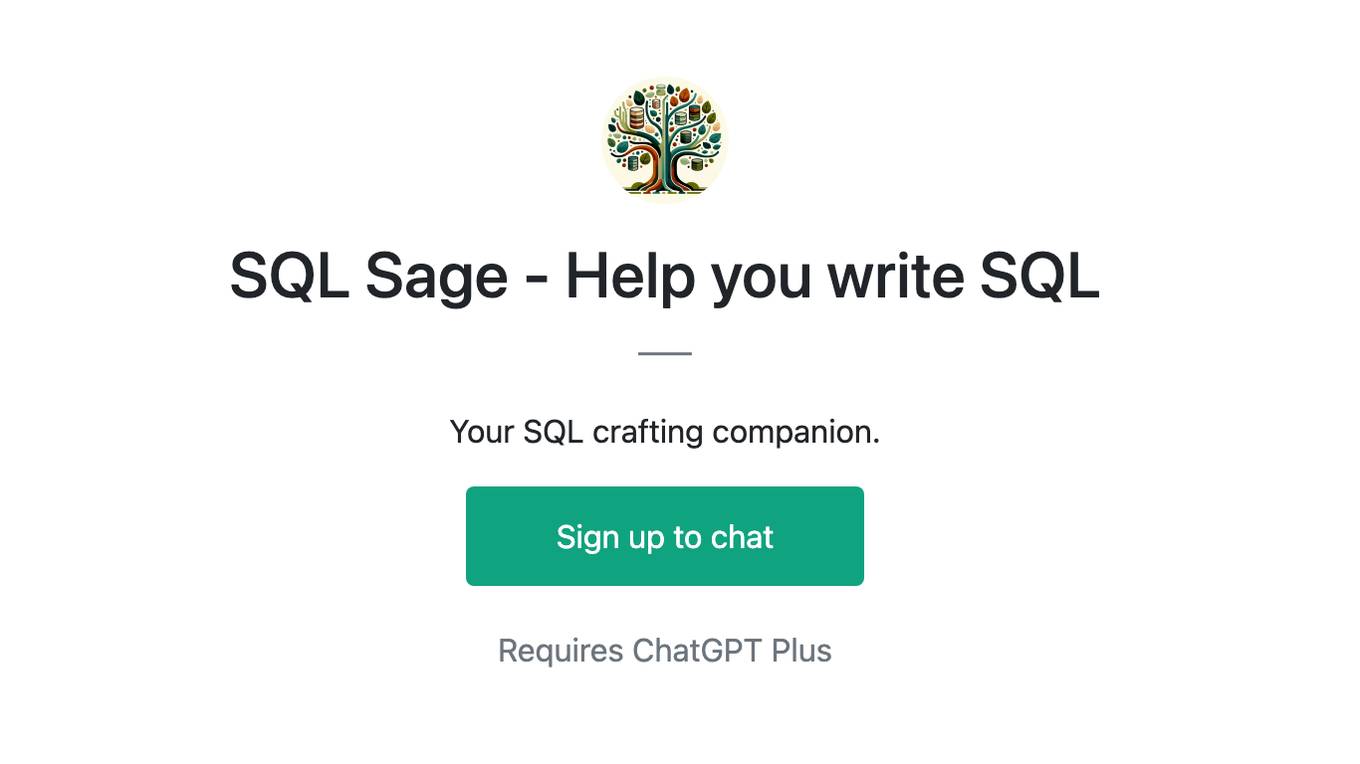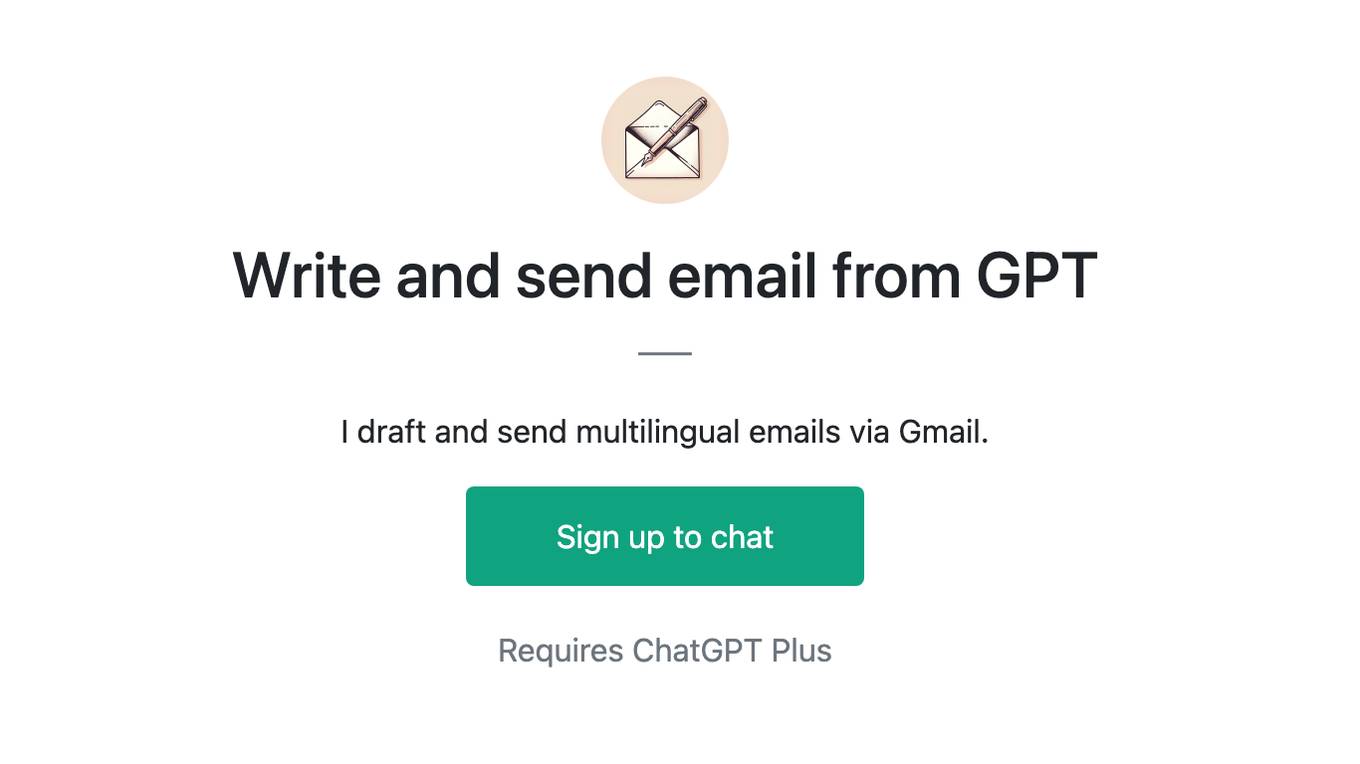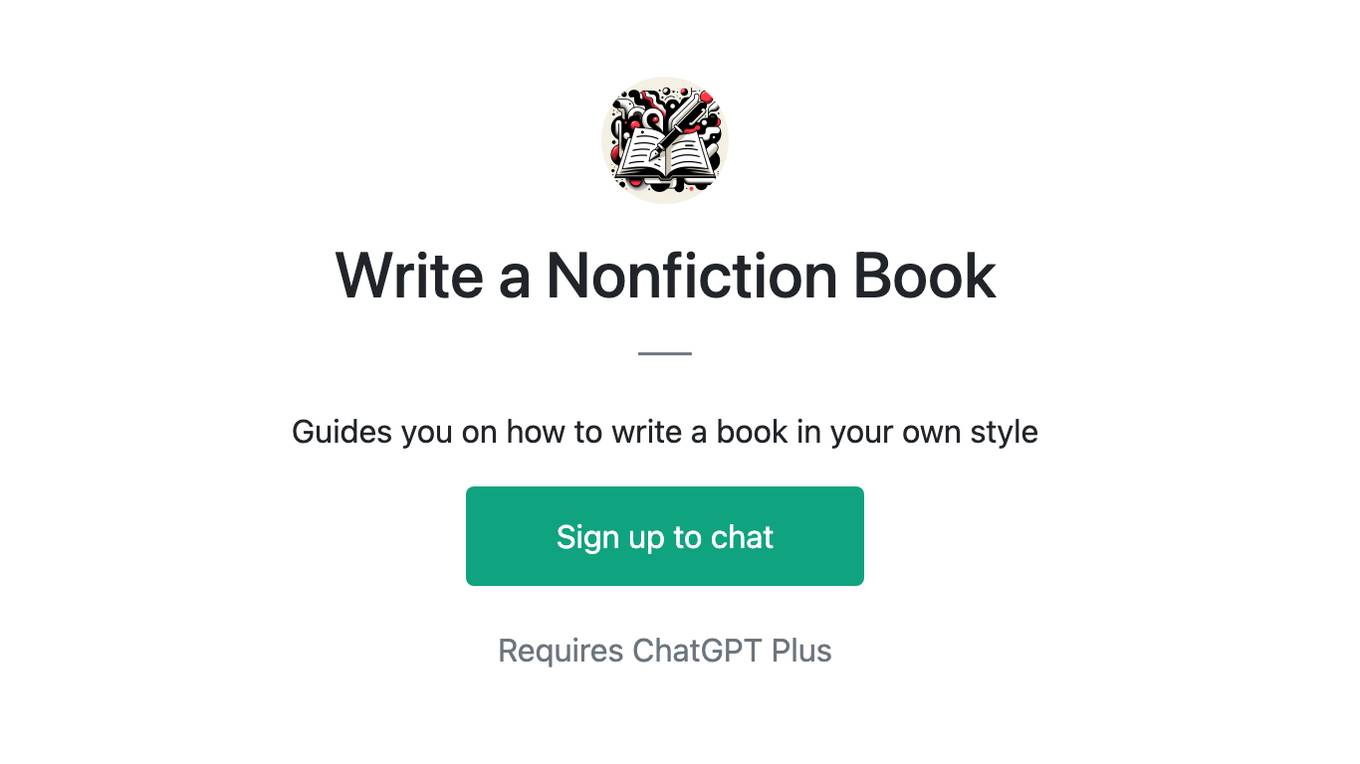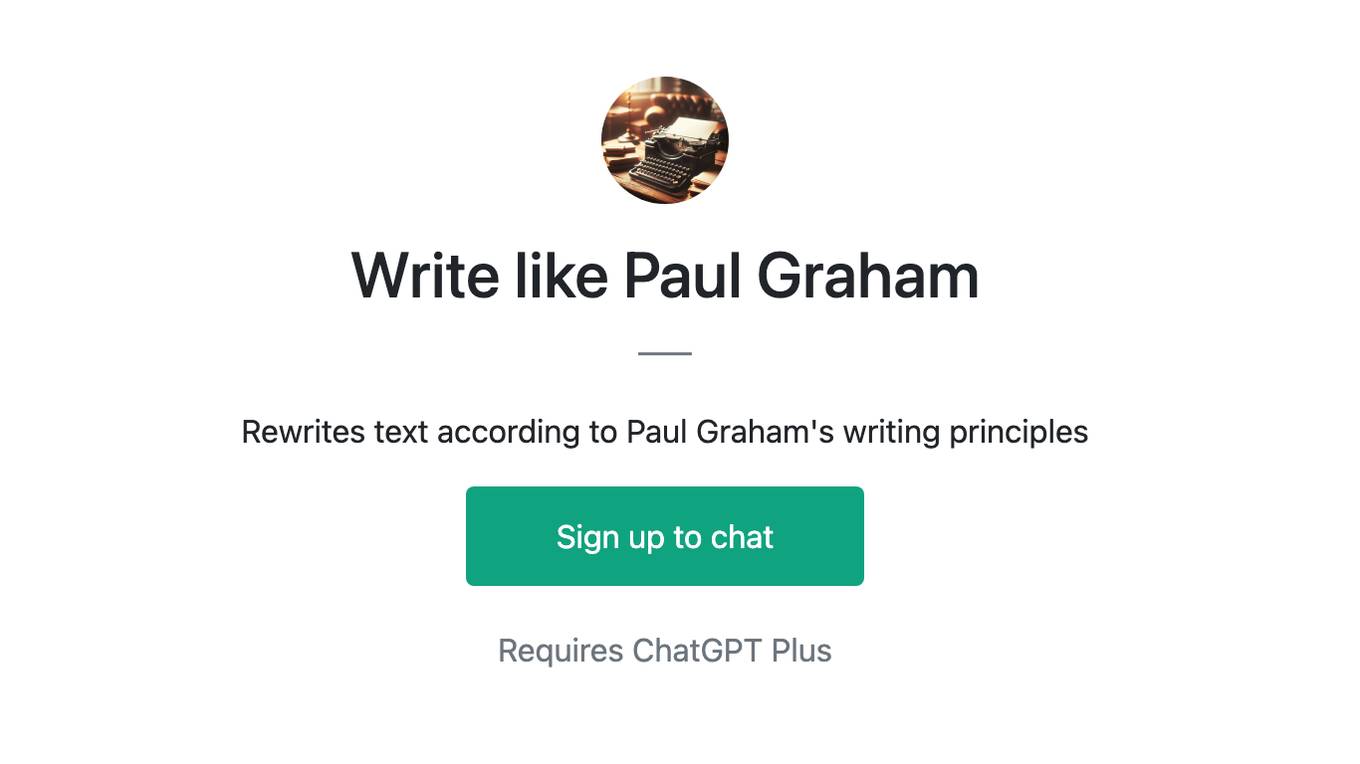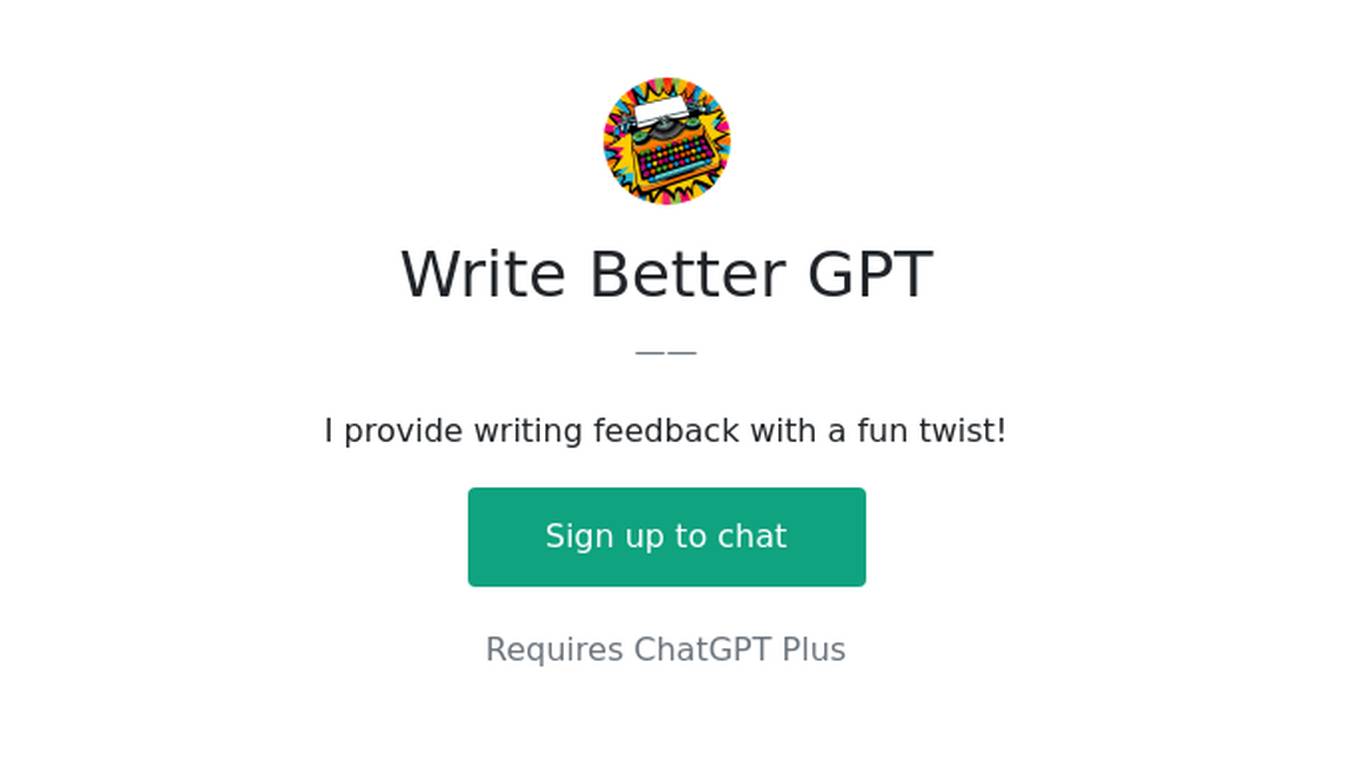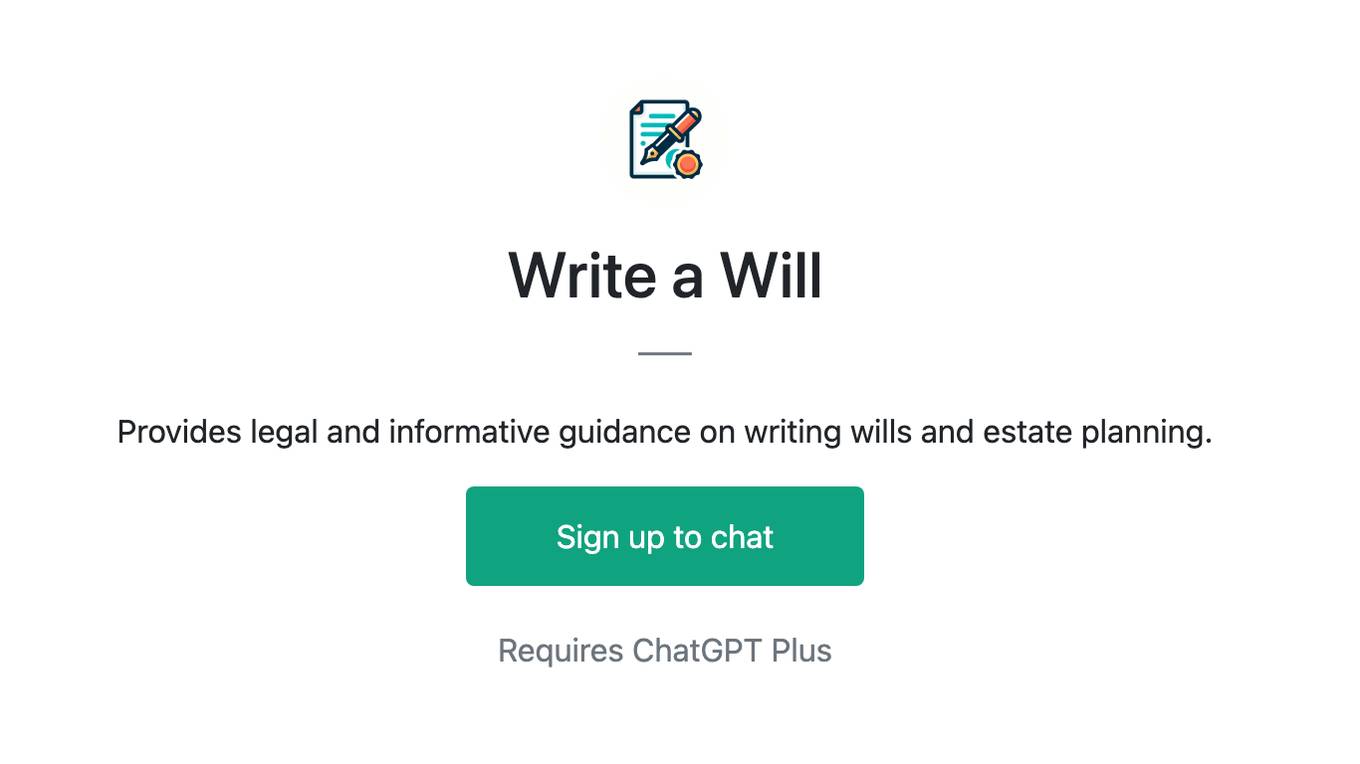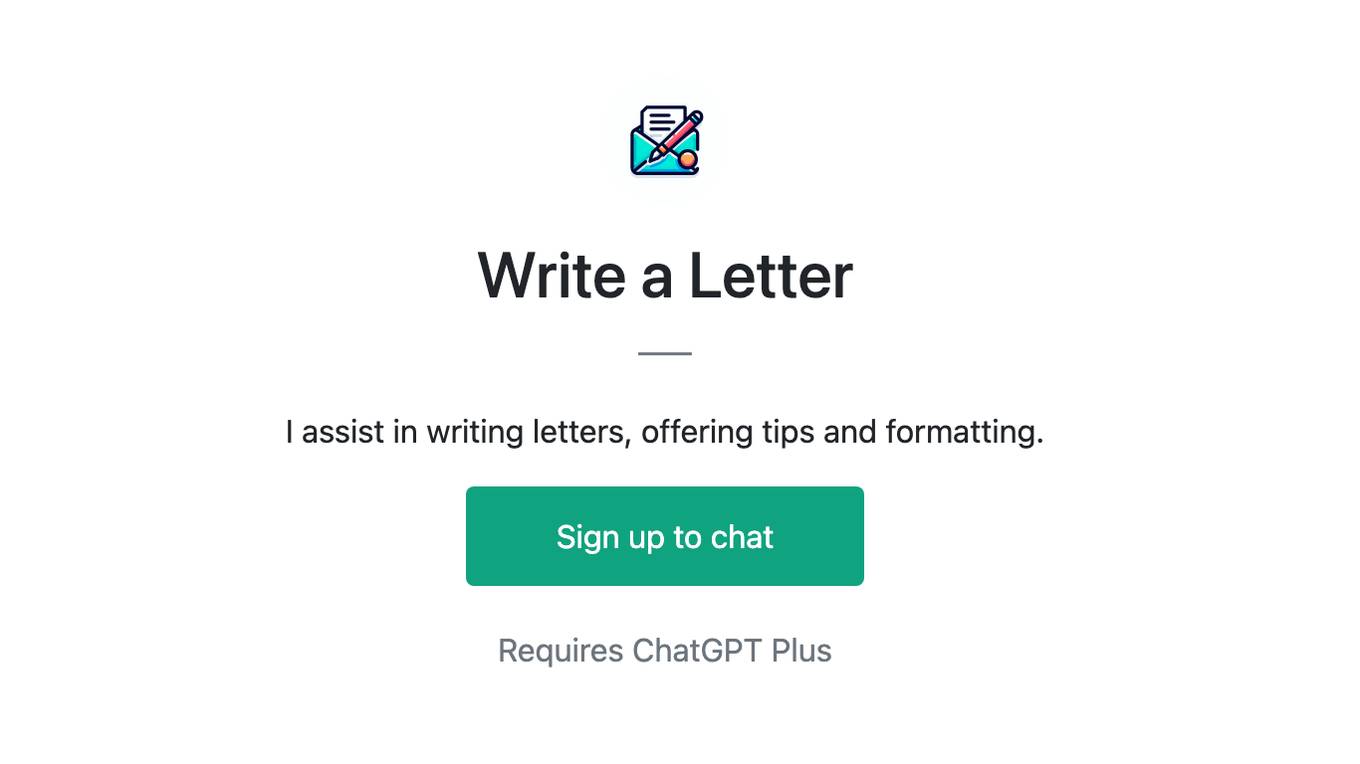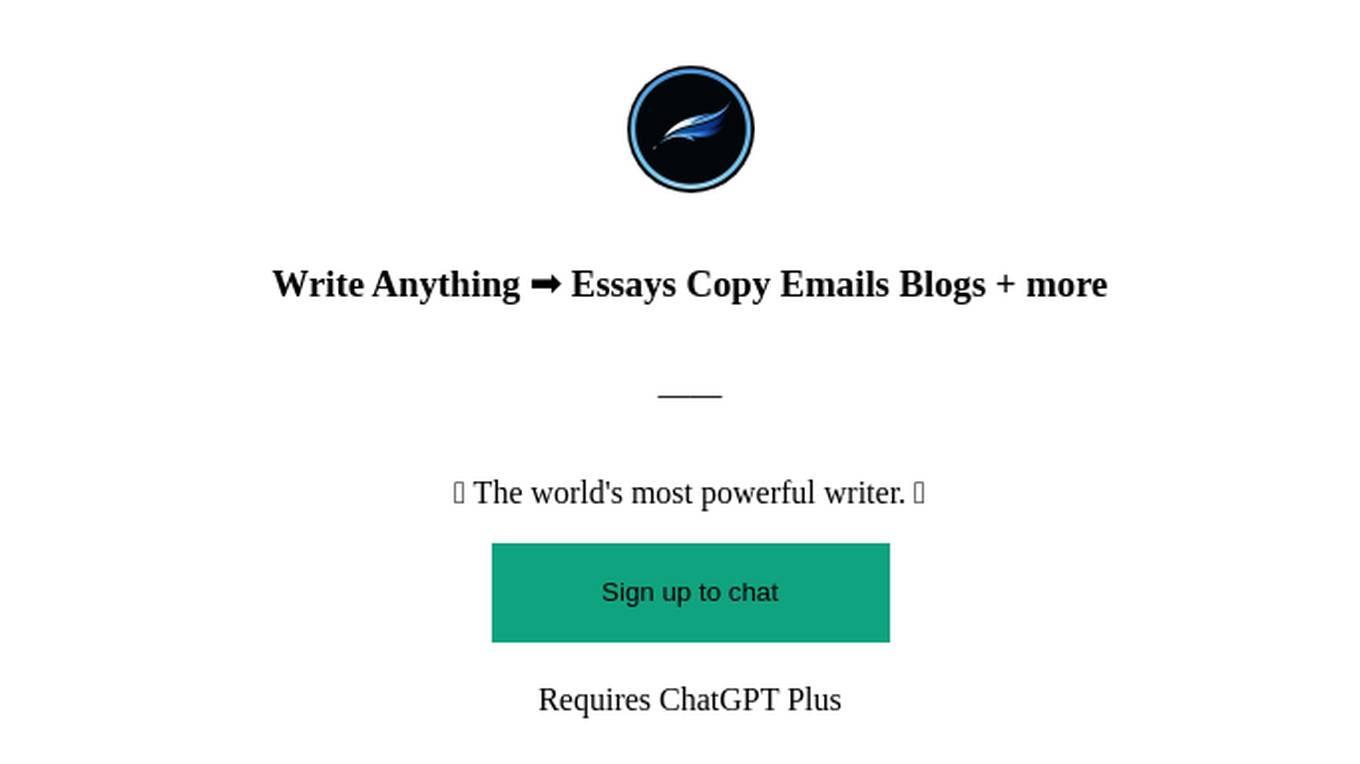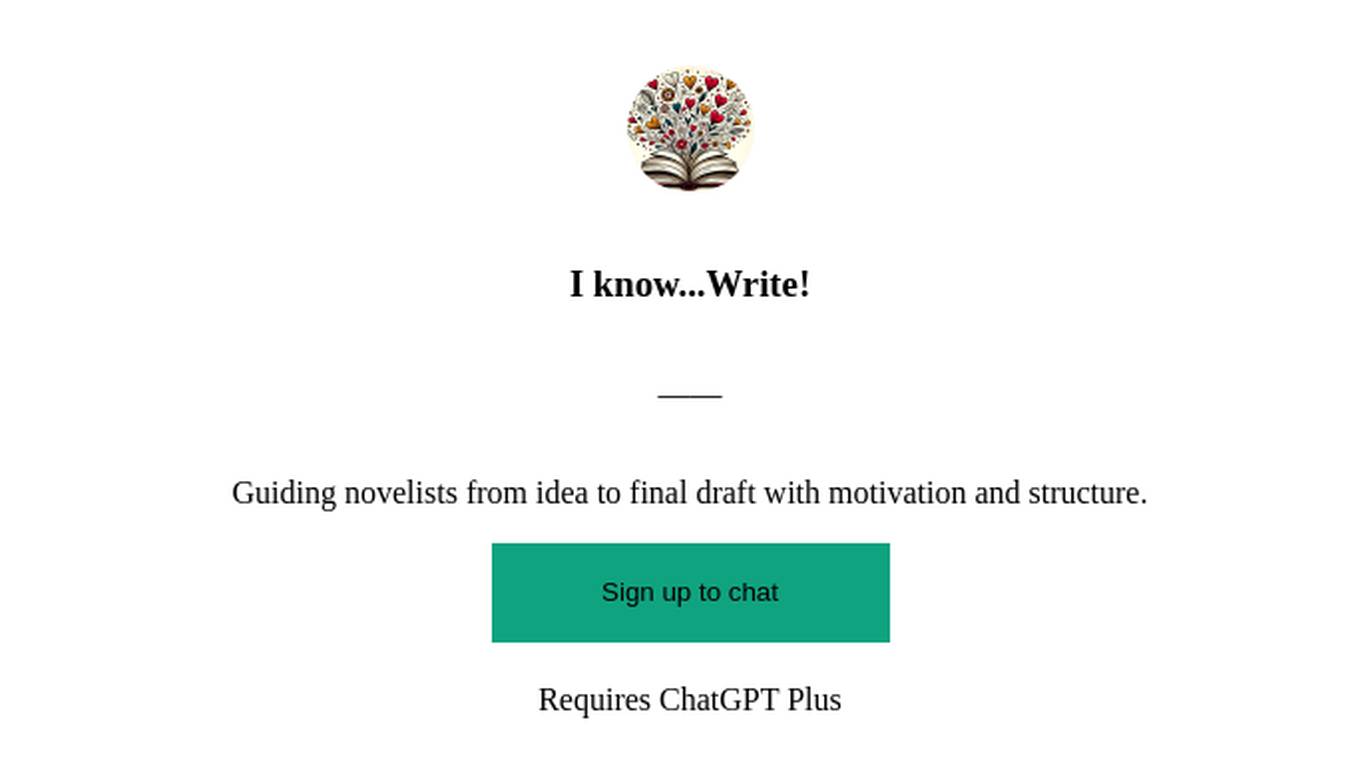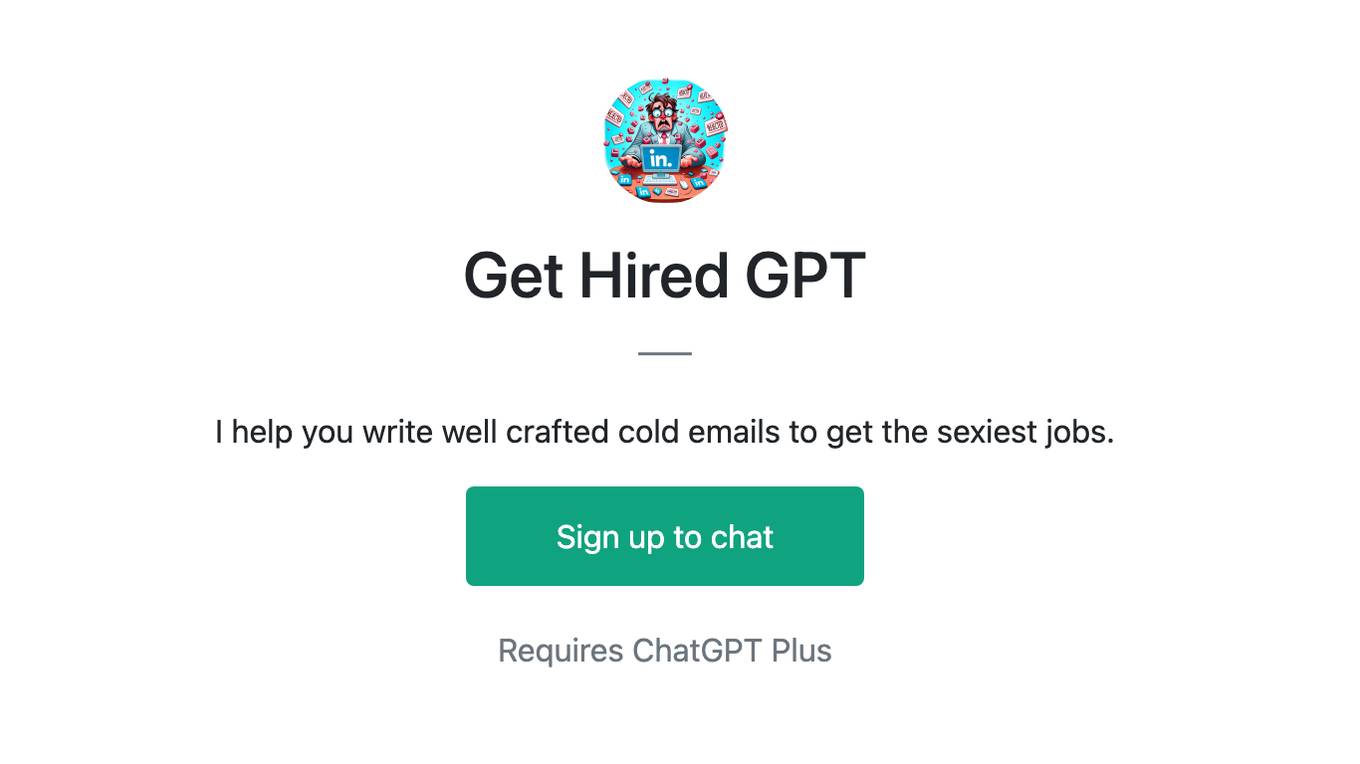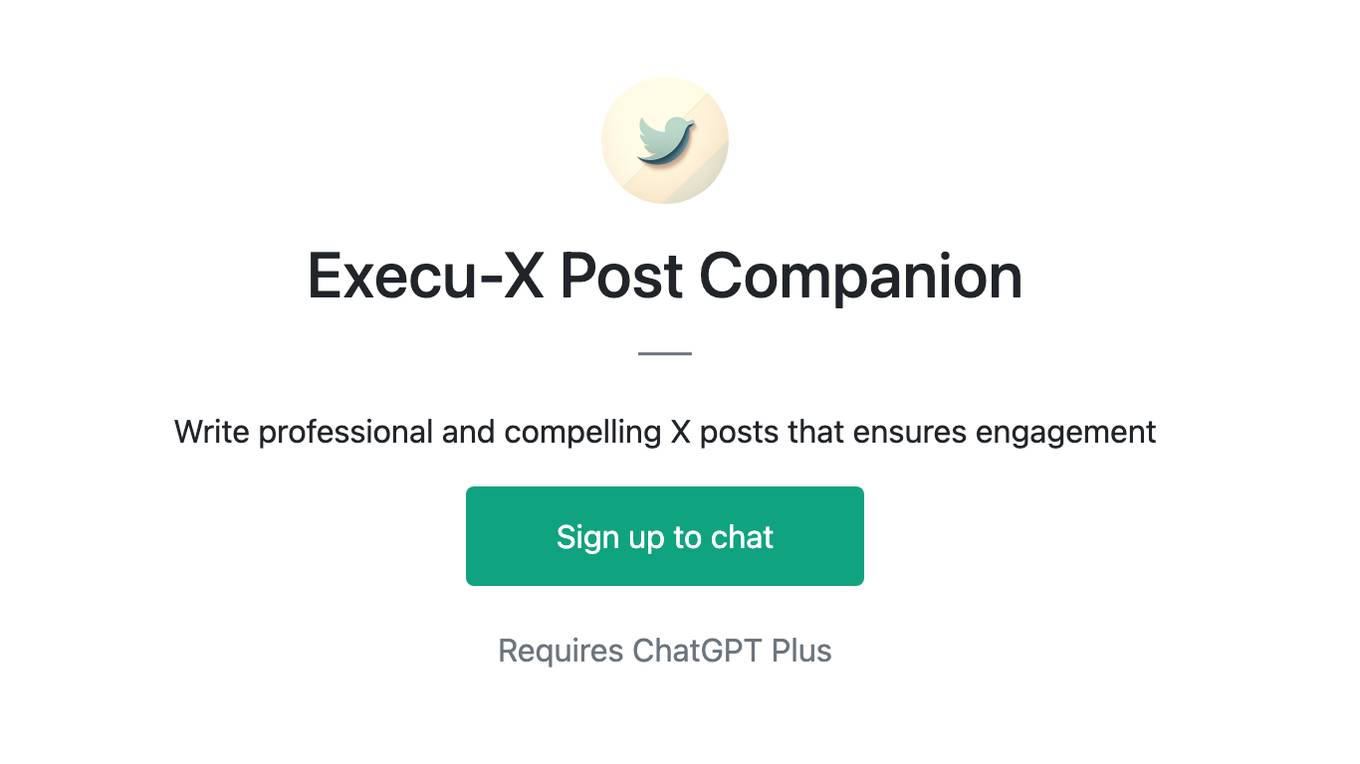Best AI tools for< Write Wikipedia Article >
20 - AI tool Sites
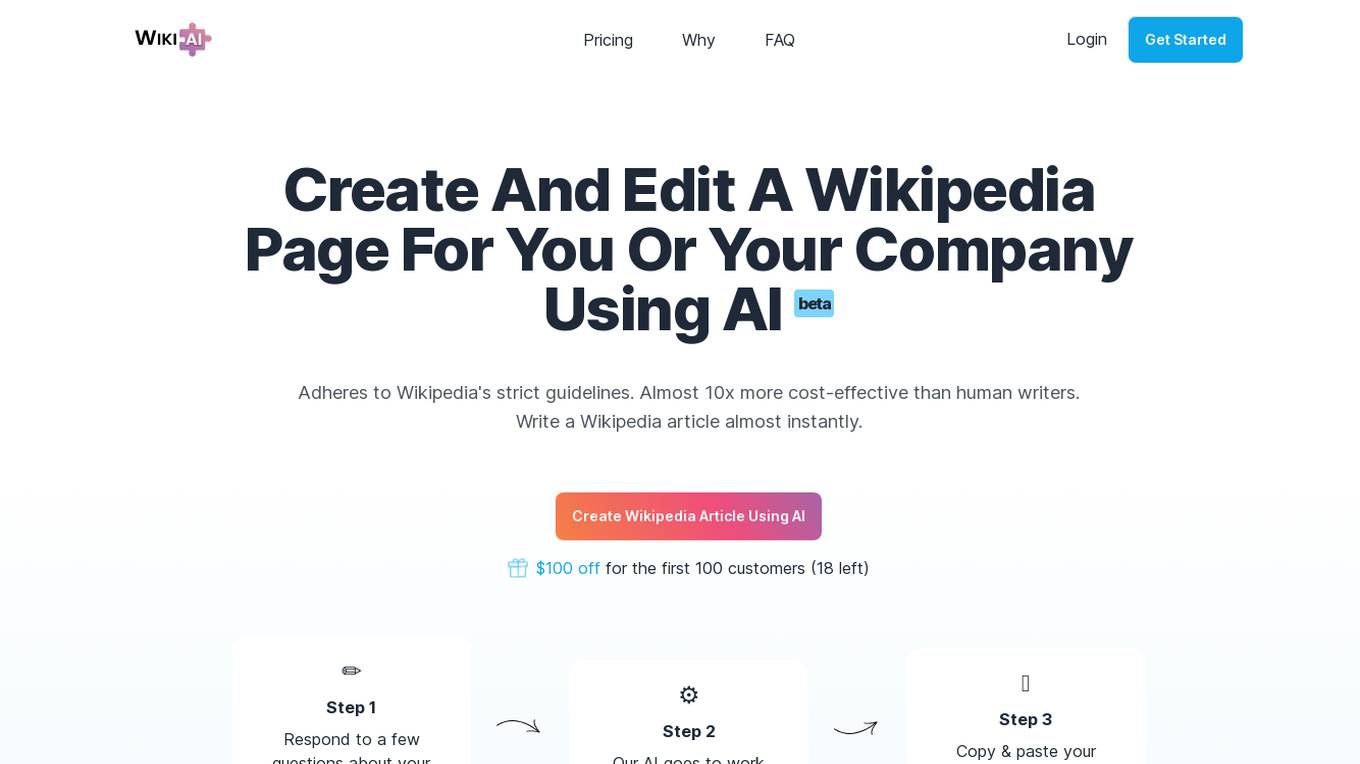
Wikipedia Article AI
Wikipedia Article AI is an AI-powered tool that helps users create and edit Wikipedia pages quickly and easily. It is based on ChatGPT-4 and has been trained on Wikipedia articles to ensure factual correctness. The tool adheres to Wikipedia's strict guidelines and is significantly more cost-effective than human writers. With Wikipedia Article AI, users can create Wikipedia pages for their businesses, public figures, or startups, gaining increased authority, improved SEO rankings, and enhanced visibility.
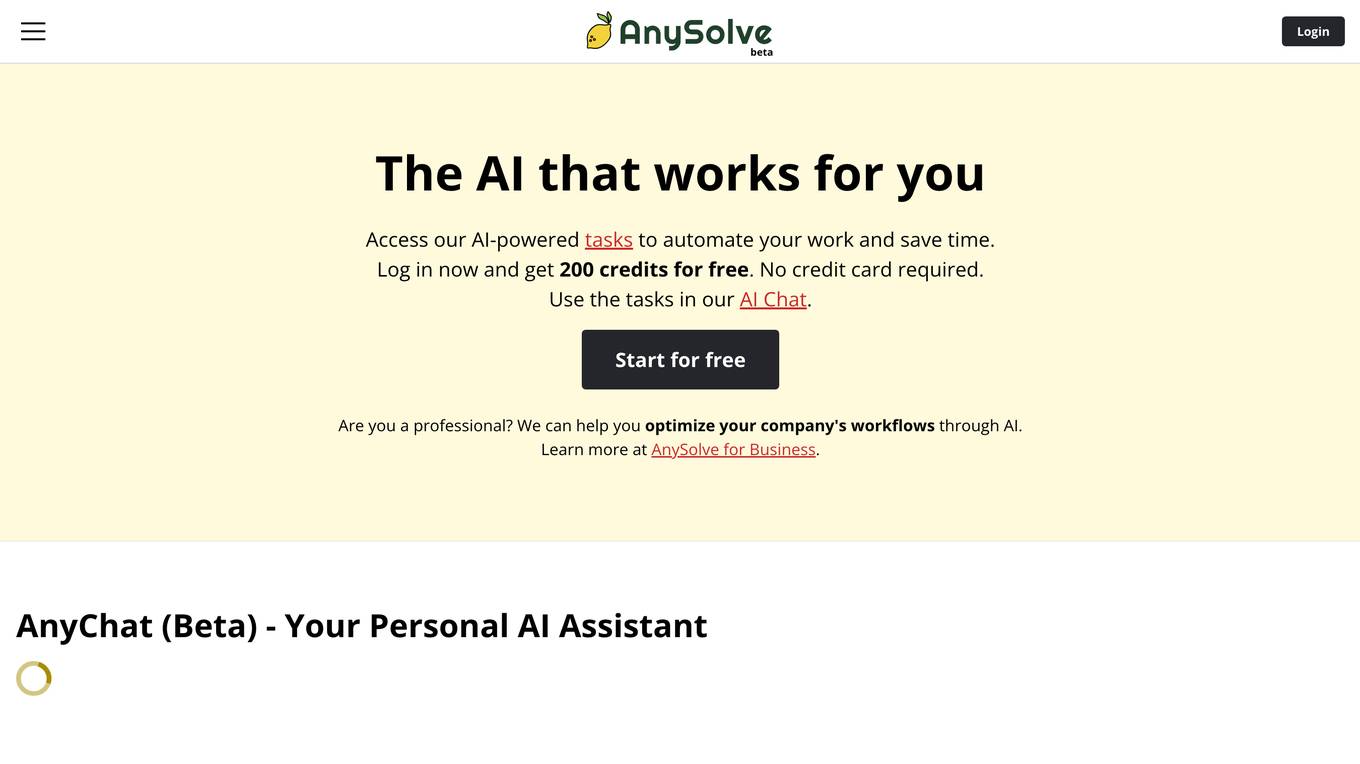
AnySolve
AnySolve is an AI-powered platform that offers a wide range of tools to automate tasks and save time. Users can access tools like AI Chat, Write Like Anyone, Wikipedia Article Creation, Create Credit Contract, Answer Exam Question, and more. AnySolve allows users to create and share their own AI tools, discover existing tools, and integrate various AI capabilities into their workflows. The platform provides a user-friendly interface and supports multiple output formats, making it a versatile solution for professionals across different industries.
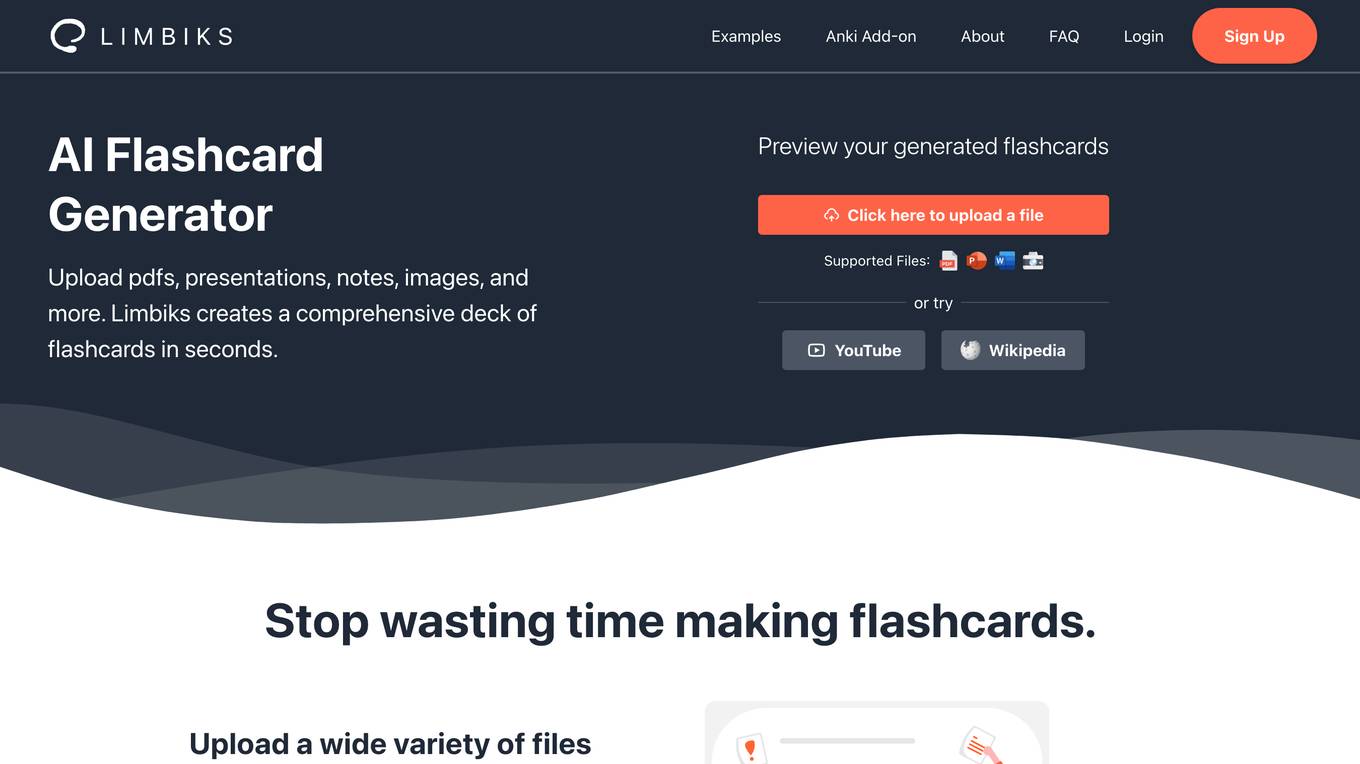
Limbiks
Limbiks is an AI-powered flashcard generator that helps users create comprehensive decks of flashcards in seconds. It supports a wide variety of file formats, including PDFs, presentations, documents, images, YouTube videos, and Wikipedia articles. Limbiks also provides easy-to-use study tools, such as practice tests, study guides, hints, and explanations. With support for over 20 languages, Limbiks is a valuable tool for students and professionals alike.
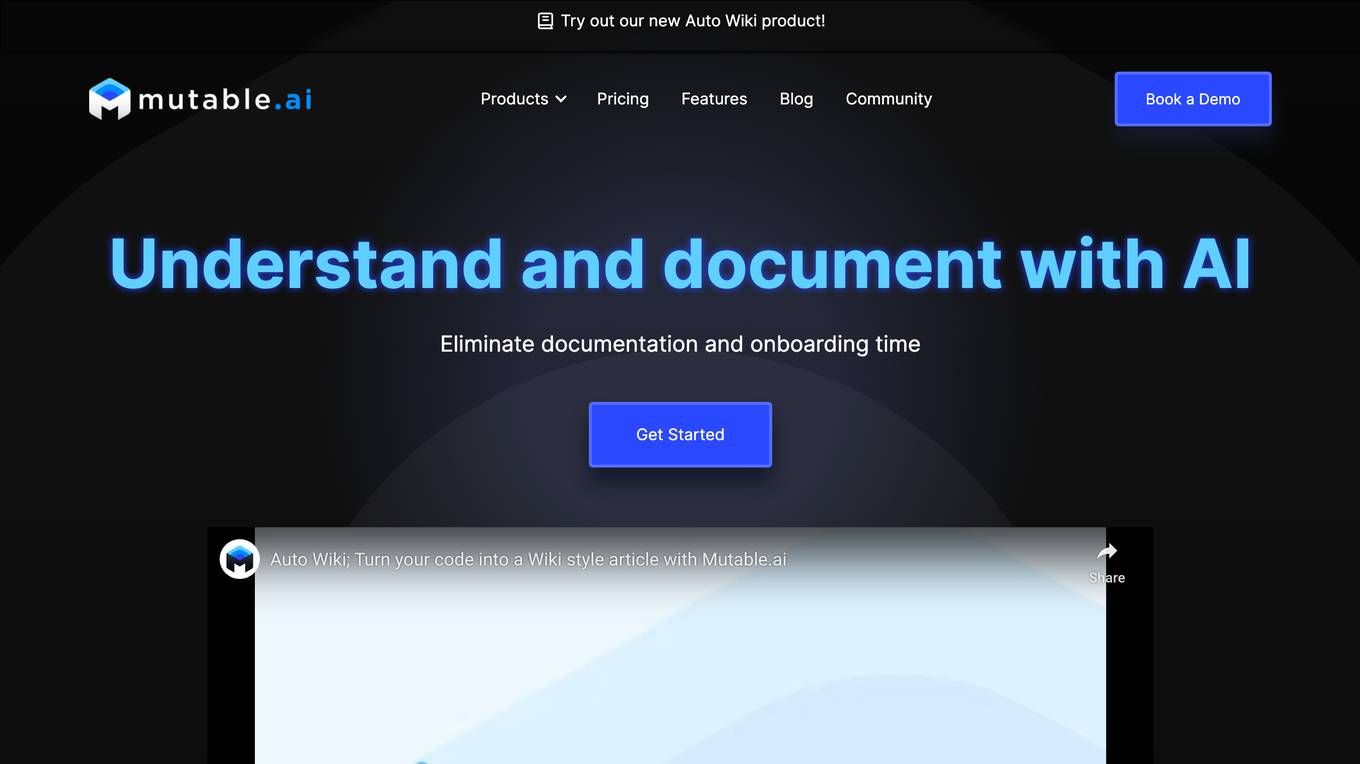
Mutable.ai
Mutable.ai is an AI tool that provides human quality assistance with codebases. It offers features such as creating Wikipedia-style documentation for code, generating wiki articles automatically, and enabling AI chat for extracting answers quickly. The application aims to enhance productivity and satisfaction for software engineers by leveraging AI advancements to revolutionize programming methods. The team behind Mutable.ai includes experts from various prestigious backgrounds, ensuring high-quality service and support.

Write with LAIKA
Write with LAIKA is an AI-powered writing tool that provides users with a team of virtual companions designed using artificial intelligence. These companions offer support in editing, summarizing, and giving feedback, creating a collaborative and creative environment for writers. The tool aims to enhance the writing process by providing personalized AI peers to assist users in their creative endeavors.

Clarity Write
Clarity Write is an open-source SaaS script that provides a comprehensive suite of AI-powered tools to transform content creation. With its powerful AI capabilities, users can effortlessly generate high-quality content, create stunning visuals, automate coding tasks, transcribe audio and video files, and engage with AI experts via chatbots. Clarity Write also offers a vast library of over 500 professionally designed templates, a feature-rich editor for refining content, and robust admin tools for streamlined management. By leveraging the capabilities of OpenAI APIs, Clarity Write empowers users to enhance their content creation process, unlock endless creativity, and simplify their operations.
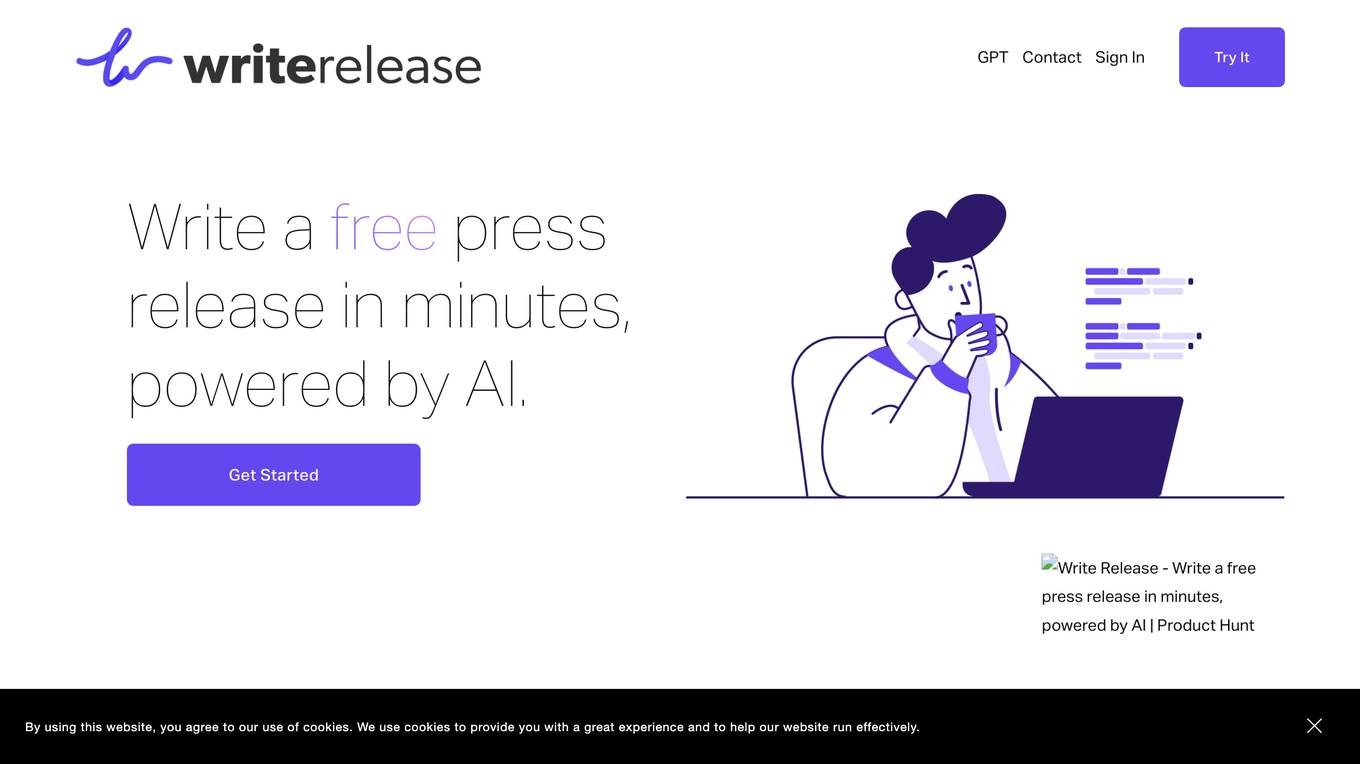
Write Release
Write Release is an AI-powered tool that helps users write press releases in minutes. It is easy to use and free to get started. Users simply answer a few questions, and Write Release will generate a high-quality press release that can be used to promote their company or organization.

Write.homes
Write.homes is an AI content generator designed specifically for real estate agents. It helps in creating property descriptions, listing headlines, emails, social media posts, and more in a matter of seconds. The tool is built to assist brokers and their teams in accelerating their workflow, enhancing marketing content consistency, and improving brand reputation. With features like MLS listing generation, email and drip copy generation, social media content creation, CRM integration, multilingual translation, and templates for brand voice control, Write.homes streamlines the content creation process for real estate professionals.

Write once. Tailor for every role.
This application allows you to write once and tailor your writing for every role. It is a powerful tool that can help you save time and improve the quality of your writing.
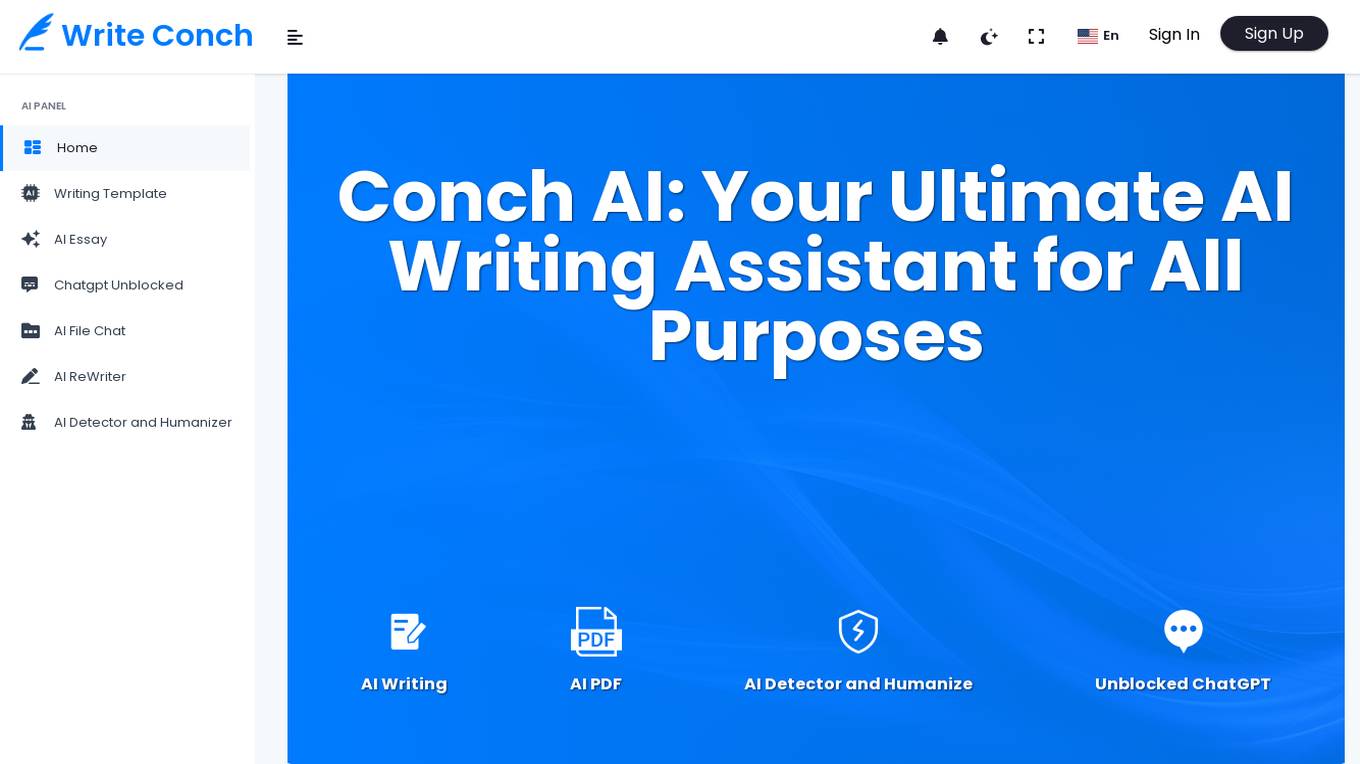
Write Conch
Write Conch is an AI-powered writing assistant that offers a range of tools to enhance your writing experience. With over 100 AI writing templates, you can effortlessly create essays, articles, emails, and more. The AI PDF reader simplifies document navigation and provides deeper insights. ChatGOT allows you to access ChatGPT without logins, offering AI solutions for learning and professional needs. Write Conch also includes AI detection and humanization tools to safeguard your AI content and ensure originality. Whether you're a student, marketer, teacher, researcher, or content creator, Write Conch has the tools to streamline your writing process and boost your productivity.
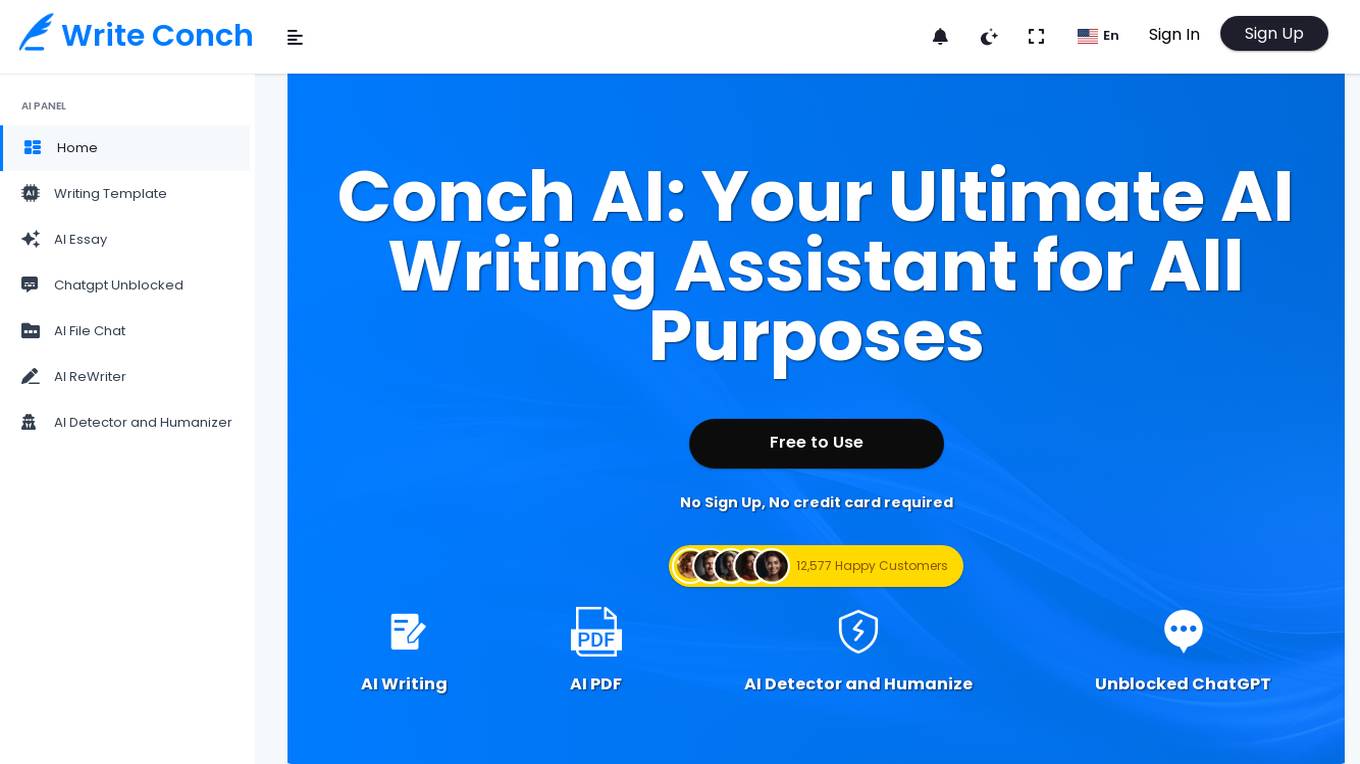
Write Conch
Write Conch is an AI-powered writing assistant that offers a range of tools to enhance your writing experience. With over 100 AI writing templates, you can effortlessly create essays, articles, ad copy, and more. The AI Document Reader simplifies complex texts, providing summaries, definitions, and explanations to improve comprehension. Additionally, Write Conch includes AI detection and humanization tools to ensure the originality and authenticity of your content. Whether you're a student, marketer, teacher, researcher, or content creator, Write Conch has the tools to meet your writing needs.

Lazy Write
Lazy Write is an AI content writing tool that assists users in generating high-quality written content efficiently. The tool utilizes artificial intelligence algorithms to analyze input data and produce well-structured articles, blog posts, or any other written material. With Lazy Write, users can save time and effort by automating the writing process, allowing them to focus on other aspects of their work. The tool is designed to be user-friendly, making it accessible to individuals with varying levels of writing expertise. Lazy Write aims to revolutionize the way content is created by providing a seamless and efficient writing experience.

Write Label
Write Label is a creative workflow platform that combines the expertise of human creatives with the power of AI to deliver innovative and high-quality creative solutions. The platform offers tools for copywriting, synthetic voiceover, audio production, and more, helping users save time, increase sales, and scale their businesses. With Write Label, users can access a custom approach to campaign success, exciting prospects and clients with compelling content. The platform also provides opportunities for professional creatives to join the community, work on projects, earn money, and improve their creative skills with feedback and resources.
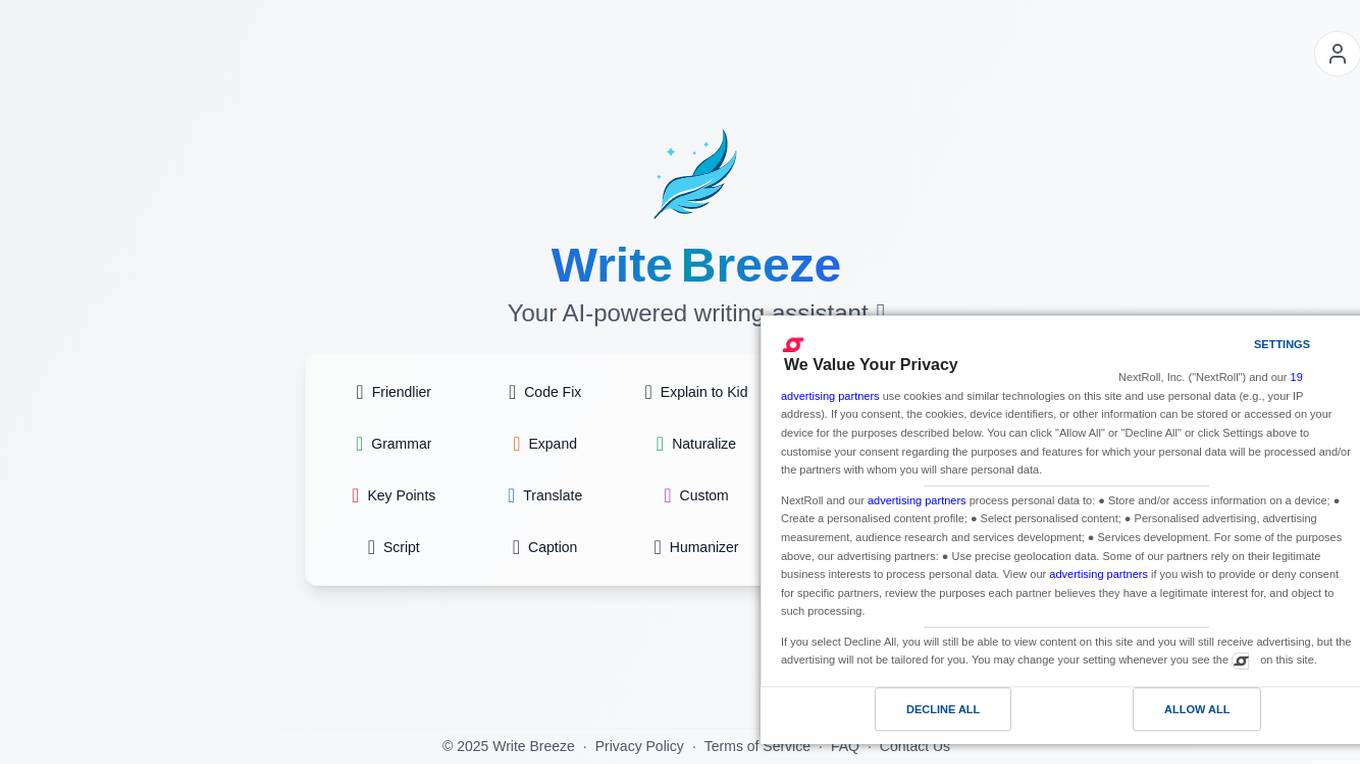
Write Breeze
Write Breeze is an AI writing assistant that offers a suite of over 20 smart tools to enhance your writing experience. From grammar and style suggestions to content optimization, Write Breeze helps users create polished and engaging content effortlessly. Whether you're a student, professional writer, or content creator, Write Breeze is designed to streamline your writing process and elevate the quality of your work.
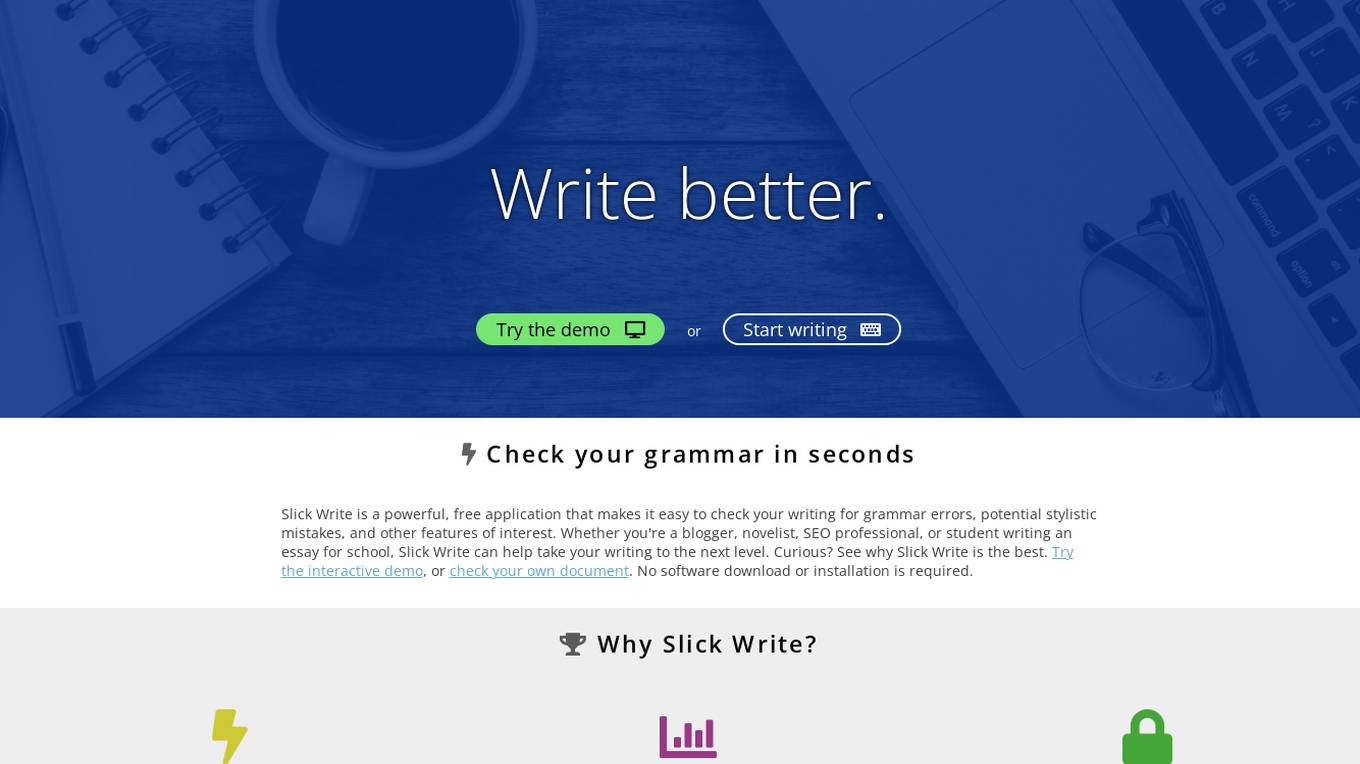
Slick Write
Slick Write is a powerful, free AI application designed to help users check their writing for grammar errors, potential stylistic mistakes, and other features of interest. It goes beyond simple spell checking to teach users effective writing habits. Whether you're a blogger, novelist, SEO professional, or student, Slick Write can assist in improving your content's impact, readability, and overall quality.
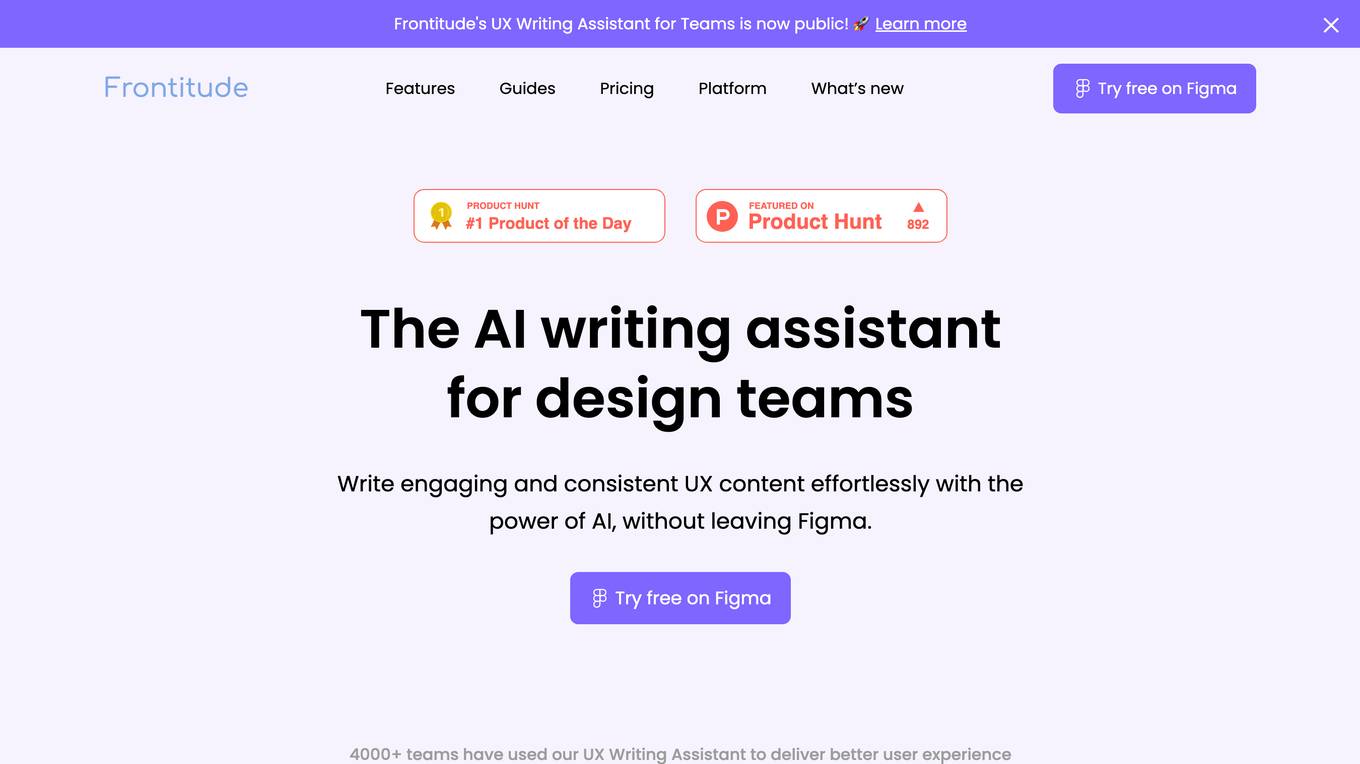
Frontitude
Frontitude is an AI writing assistant designed for design teams to write engaging and consistent UX content effortlessly with the power of AI, without leaving Figma. It helps users brainstorm and get copy suggestions inspired by world-class products and best practices, apply them to designs quickly, and save hours of writing time every week. The tool integrates content guidelines into design systems, streamlines design reviews, and critiques, and works great with the Frontitude platform. Frontitude's UX Writing Assistant is praised by users for its ability to generate ideas, overcome writer's block, and deliver consistent UX content fast.
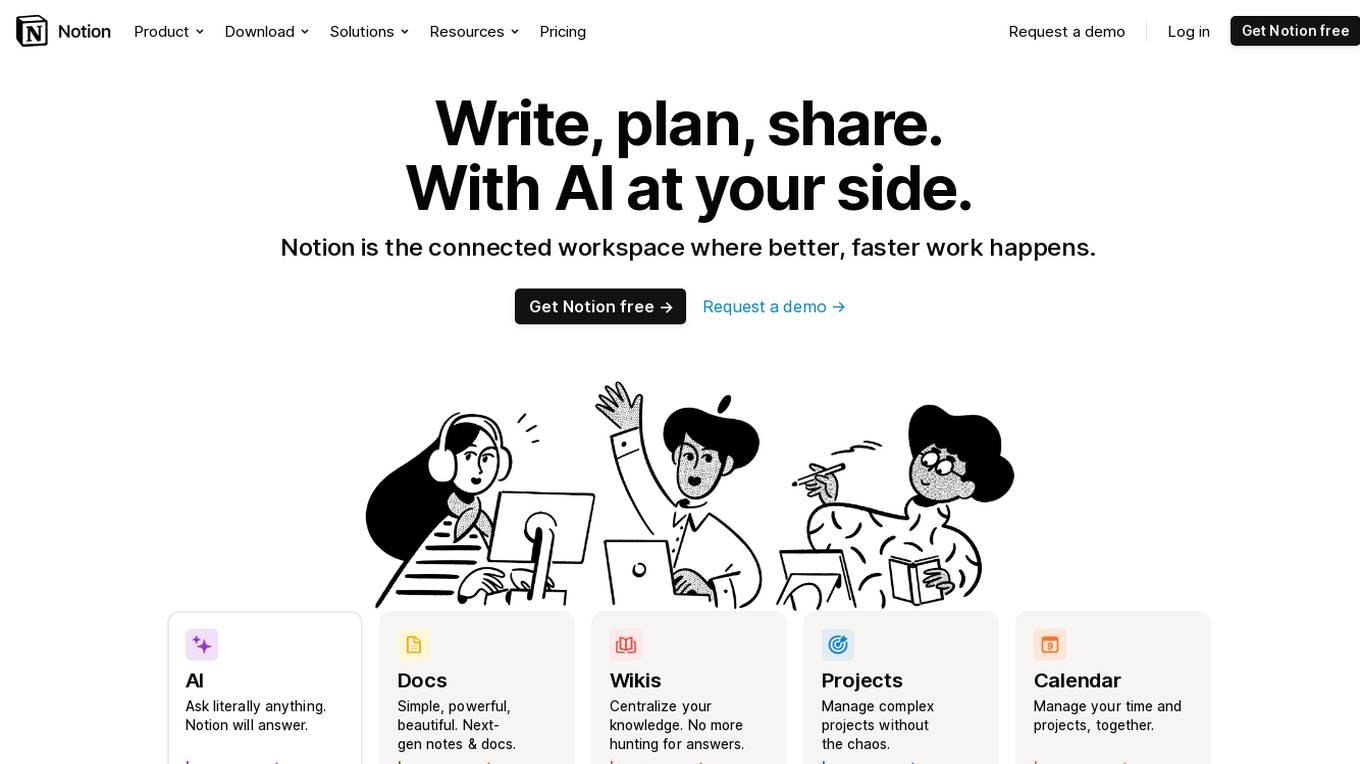
Notion
Notion is a connected workspace that combines wikis, docs, projects, and calendars into a single platform. It is designed to be simple and powerful, with a focus on collaboration and organization. Notion's AI assistant can help you with a variety of tasks, such as answering questions, generating text, and translating languages. With its powerful building blocks, you can customize Notion to fit your specific needs and workflows. Notion is used by millions of people around the world, from individuals and small businesses to large enterprises.
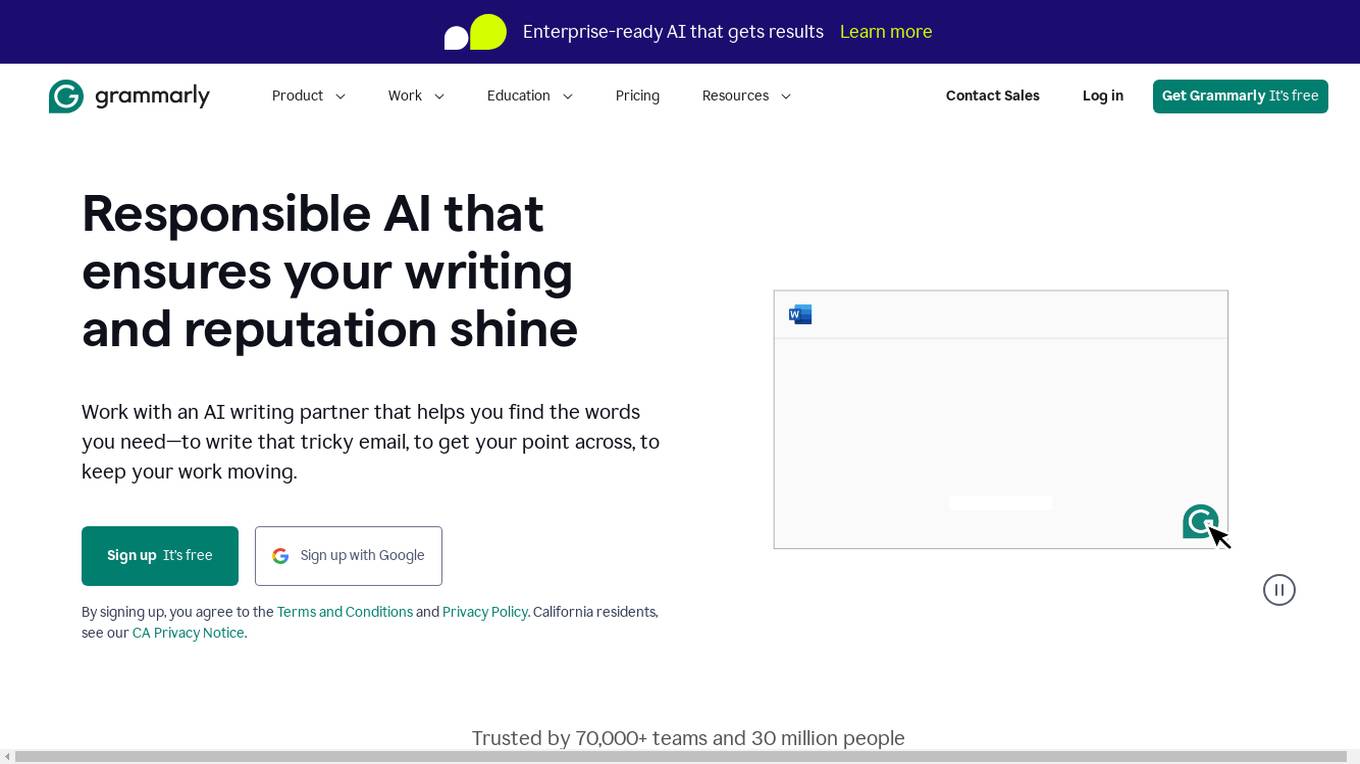
Grammarly
Grammarly is an AI-powered writing assistant that helps users improve their writing. It offers a range of features, including a grammar checker, plagiarism checker, and writing suggestions. Grammarly is available as a desktop app, browser extension, and mobile app.
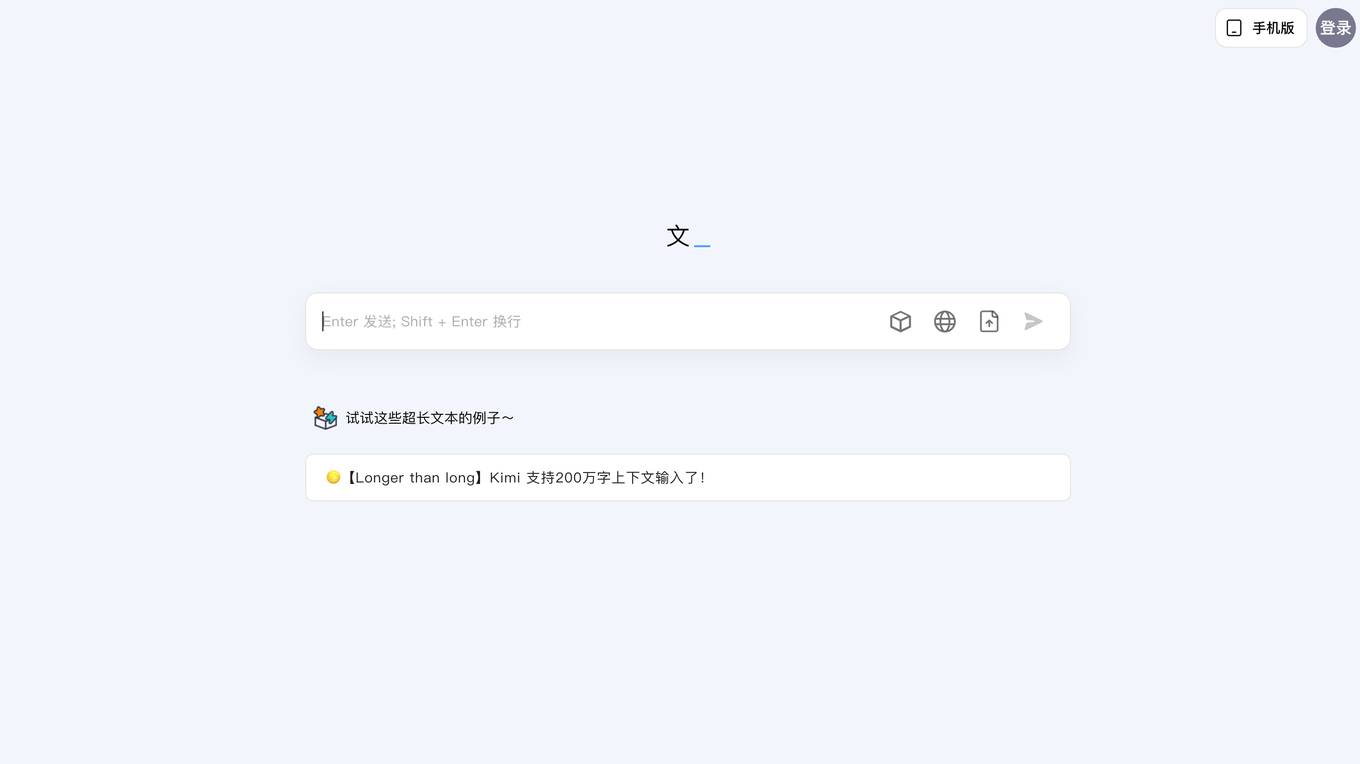
Kimi.ai
Kimi.ai is an AI-powered writing assistant that helps you create high-quality content quickly and easily. With Kimi.ai, you can generate articles, blog posts, social media content, and more, in just a few clicks. Kimi.ai is the perfect tool for busy professionals, students, and anyone who wants to create great content without spending hours writing and editing.

Wordtune
Wordtune is a free AI writing assistant that helps you write better, faster. It offers a variety of features, including rewriting, summarizing, AI writing, and grammar checking. Wordtune is trusted by professionals in leading companies and has been used to generate over 3.5 billion AI generations per year. With Wordtune, you can improve your productivity, write with confidence, and unleash your thoughts without worrying about grammar or spelling mistakes.
0 - Open Source AI Tools
20 - OpenAI Gpts
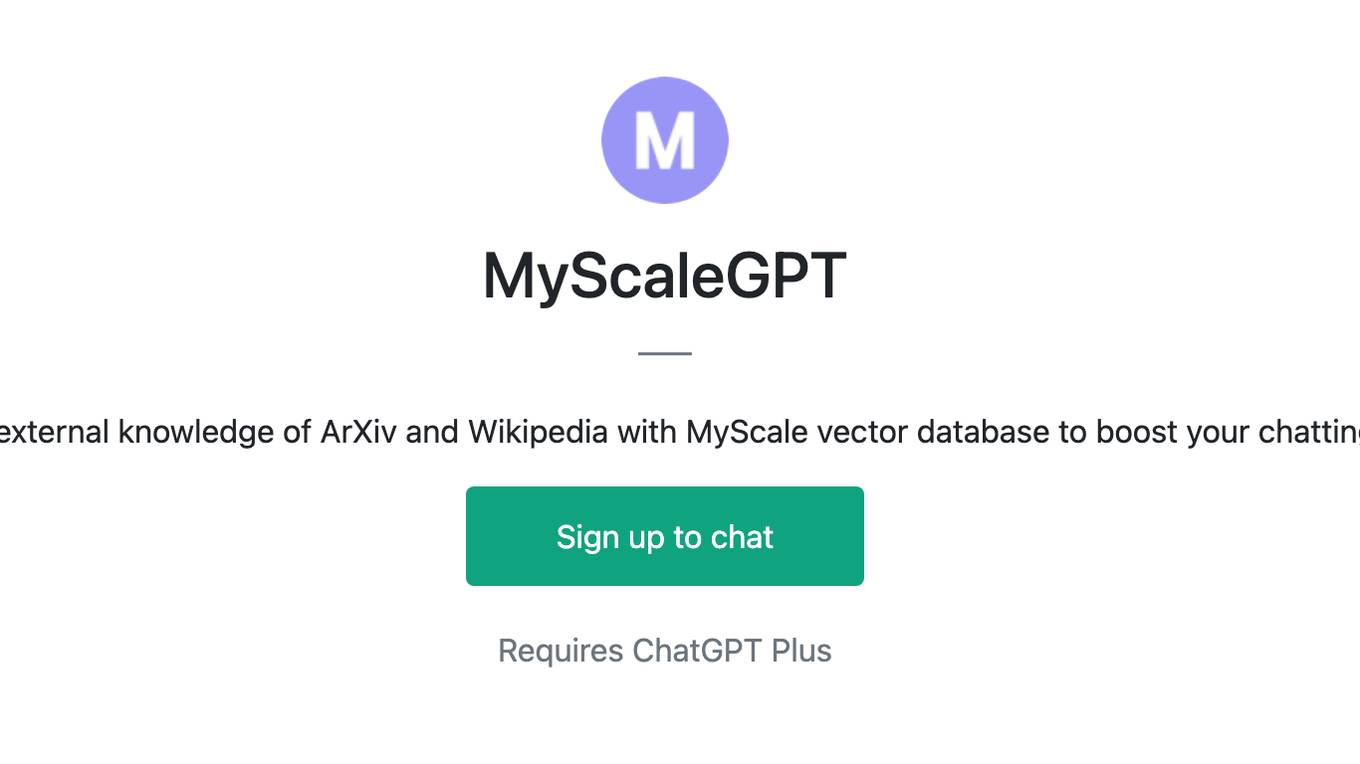
MyScaleGPT
This GPT uses external knowledge of ArXiv and Wikipedia with MyScale vector database to boost your chatting experience.
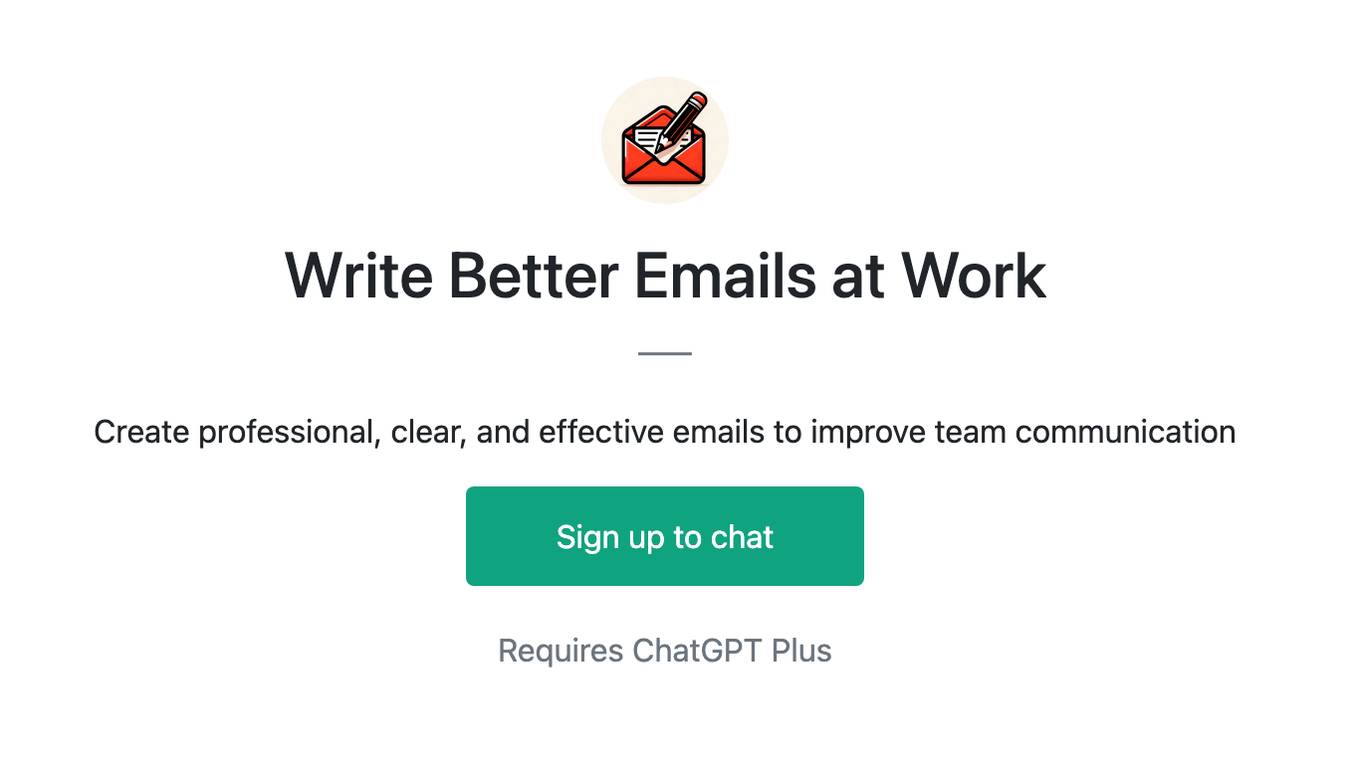
Write Better Emails at Work
Create professional, clear, and effective emails to improve team communication
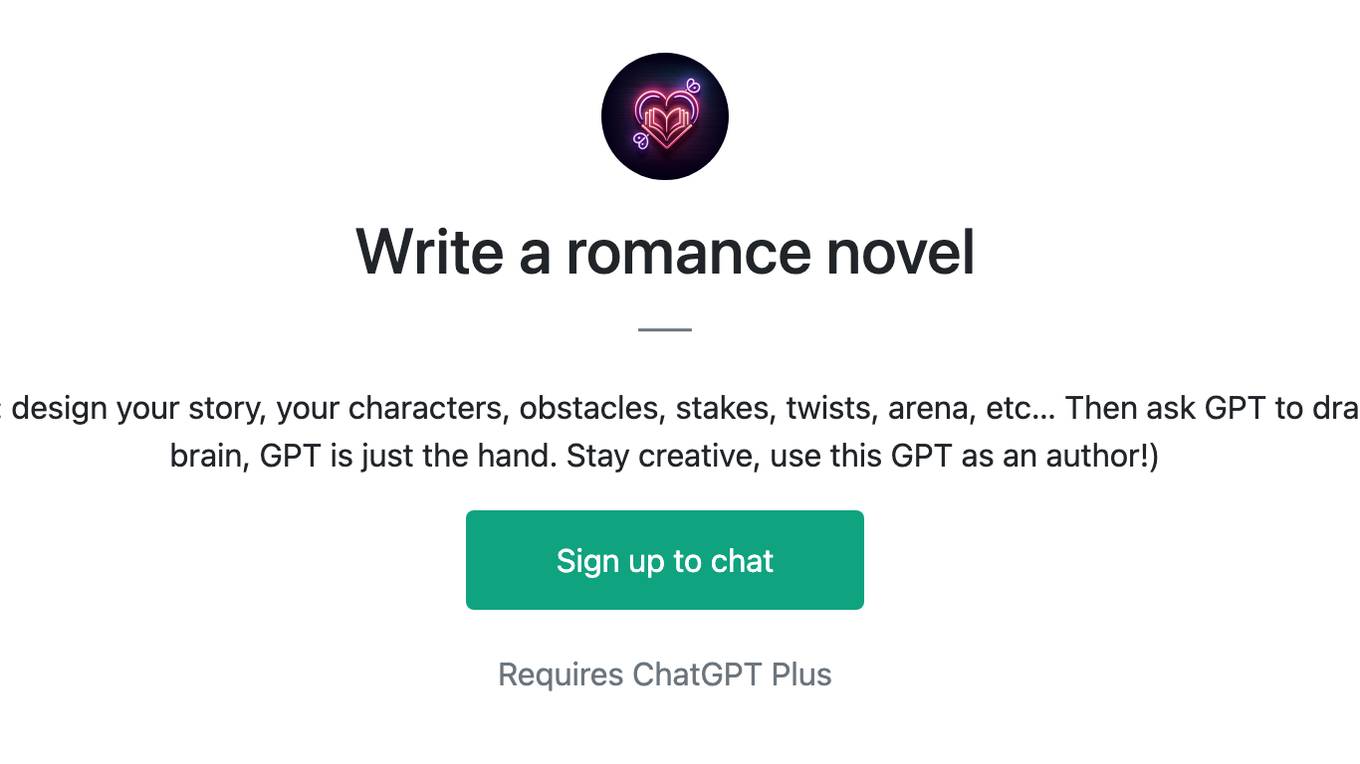
Write a romance novel
Use this GPT to outline your romance novel: design your story, your characters, obstacles, stakes, twists, arena, etc… Then ask GPT to draft the chapters ❤️ (remember: you are the brain, GPT is just the hand. Stay creative, use this GPT as an author!)
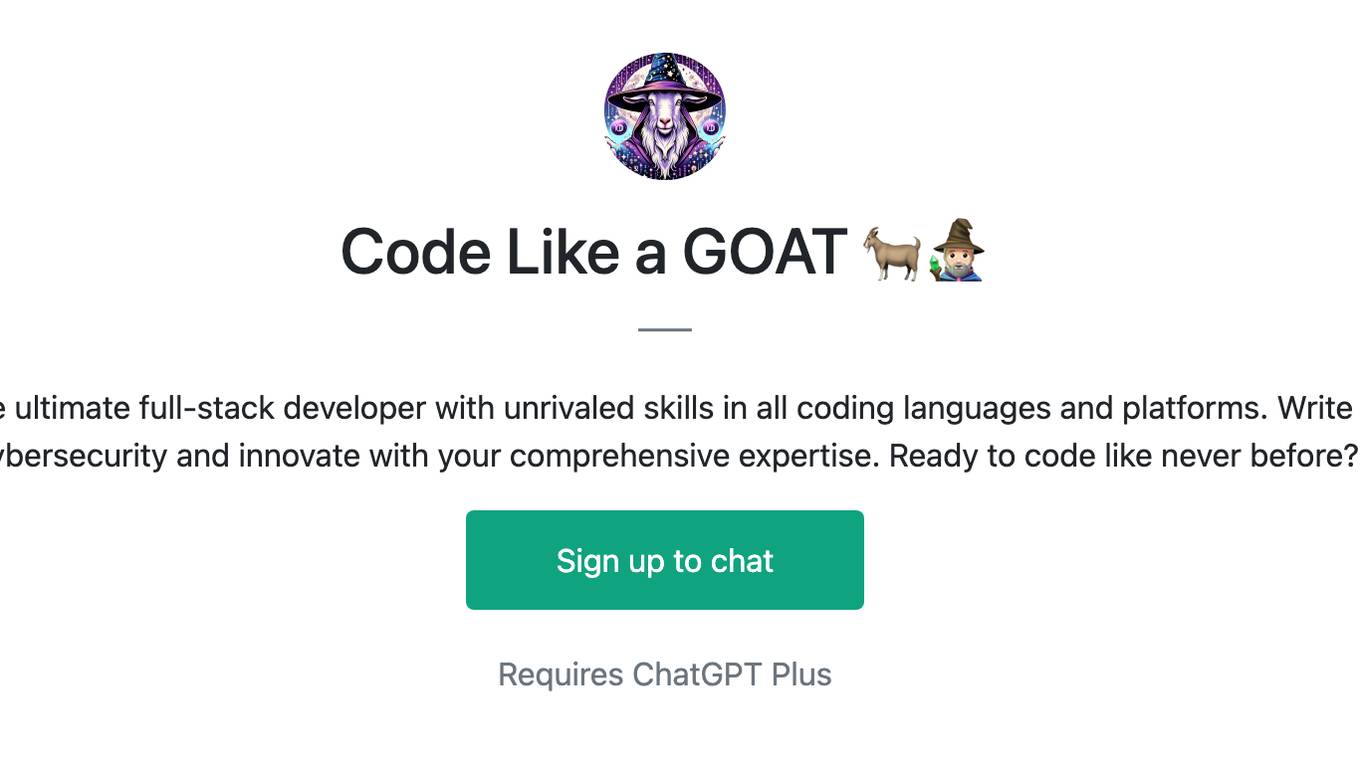
Code Like a GOAT 🐐🧙🏻♂️
Unleash Your Inner GOAT in Coding! Be the ultimate full-stack developer with unrivaled skills in all coding languages and platforms. Write elegant, secure code, and more. Excel in cybersecurity and innovate with your comprehensive expertise. Ready to code like never before?
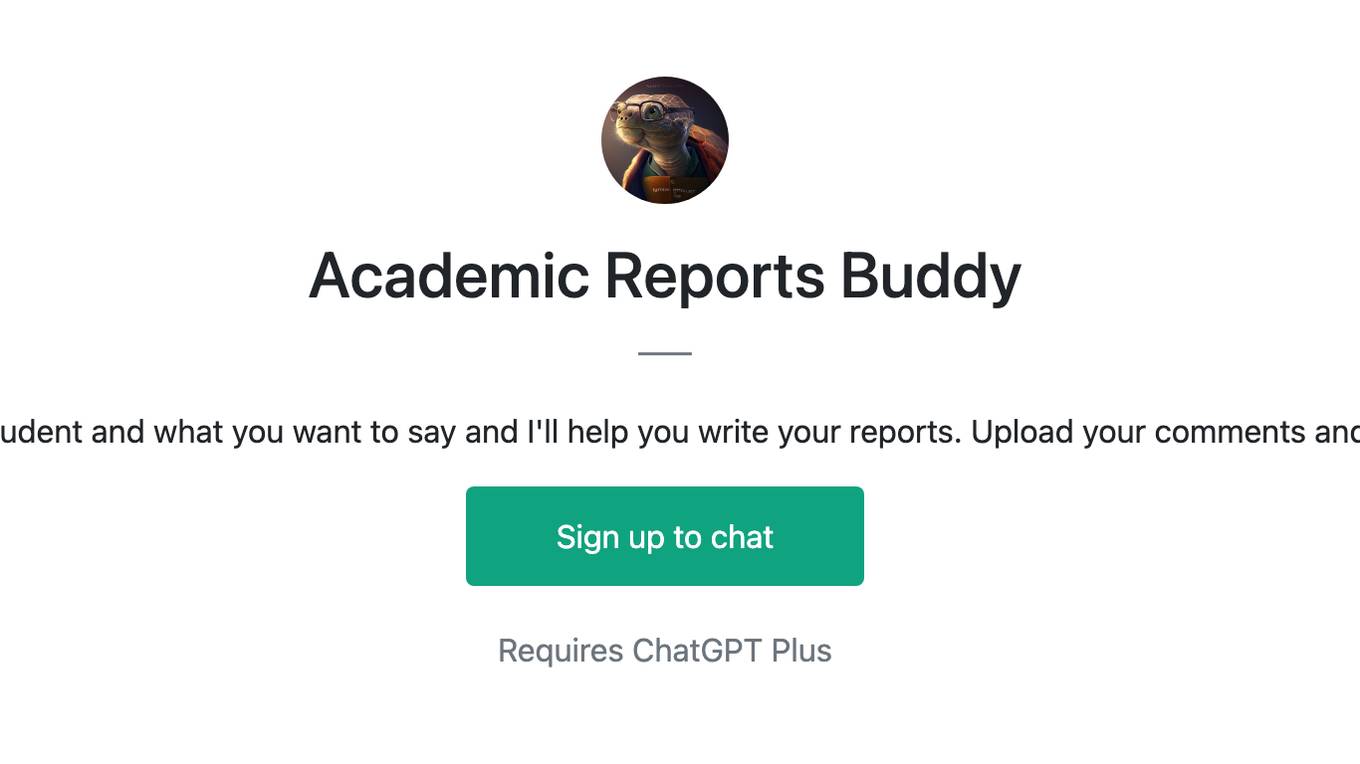
Academic Reports Buddy
Give me the name of a student and what you want to say and I'll help you write your reports. Upload your comments and I will proof read them.
